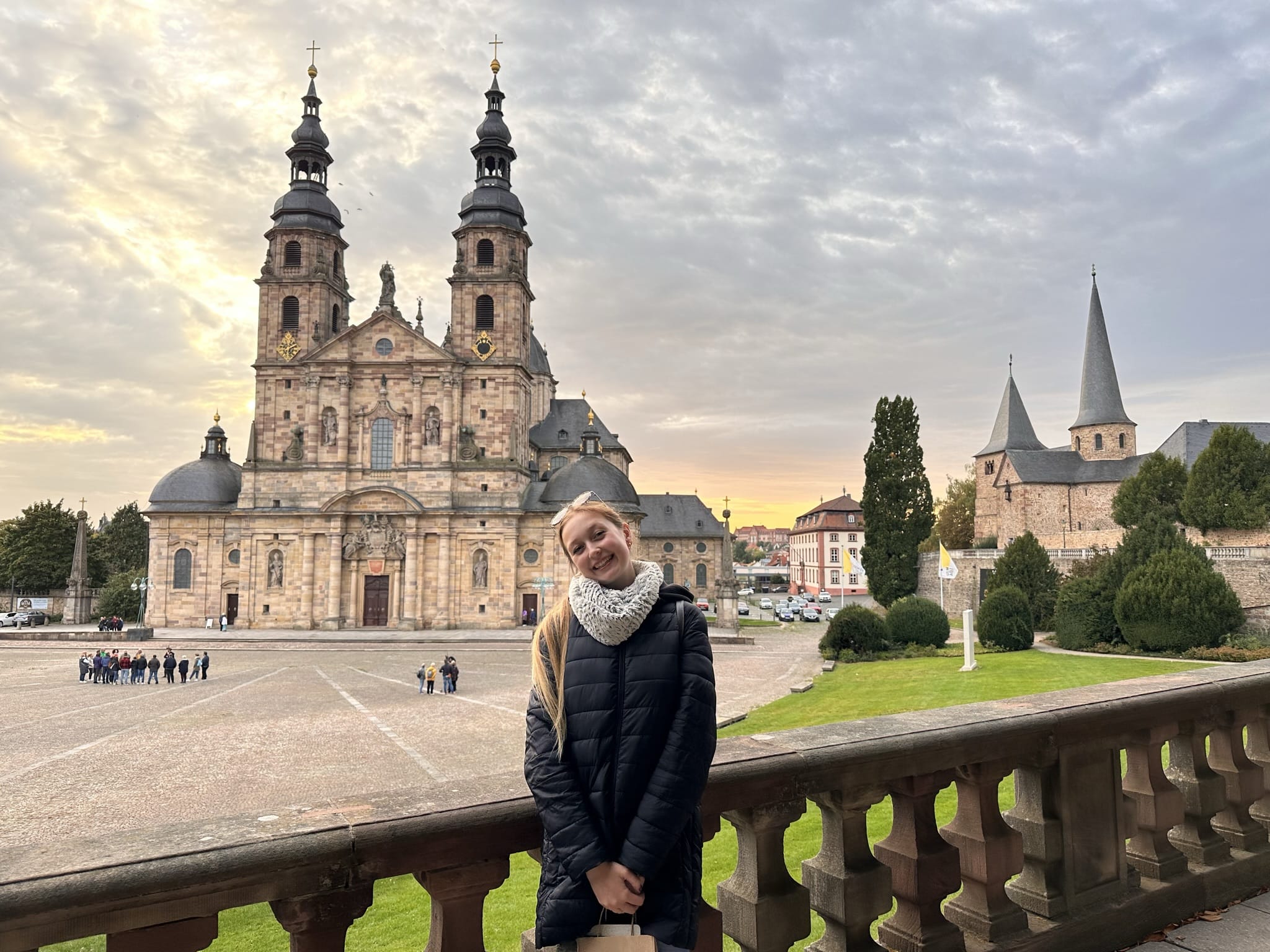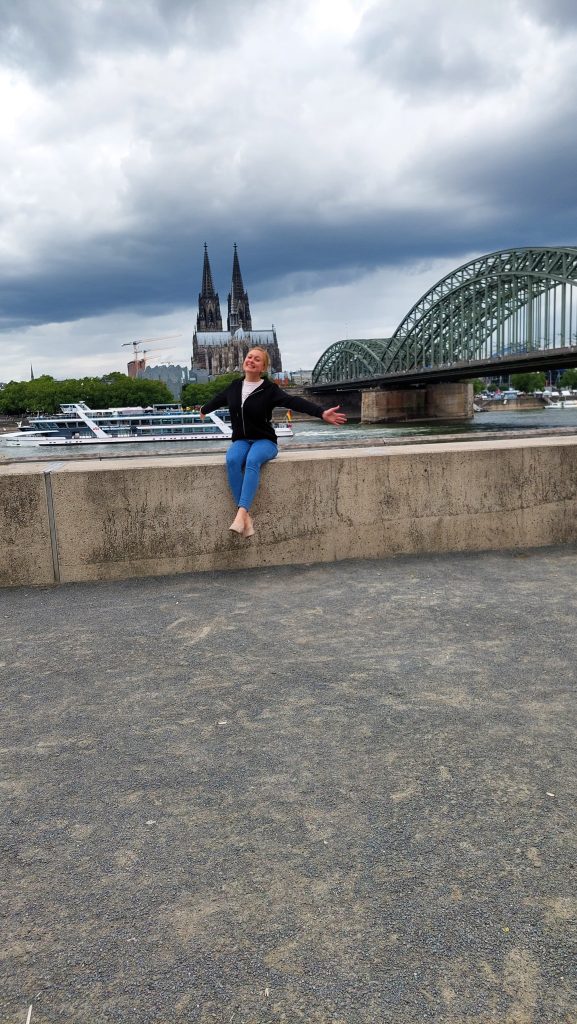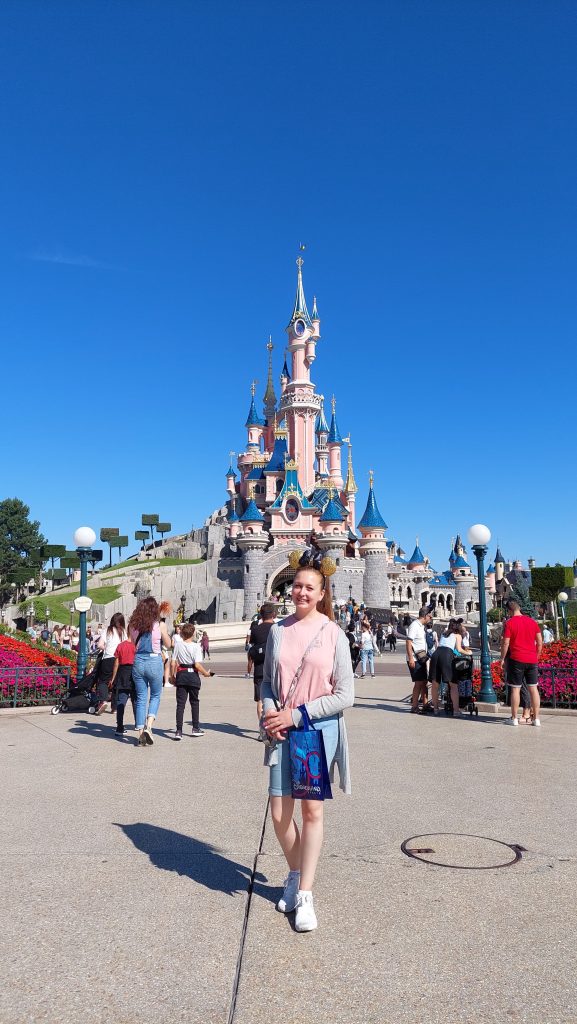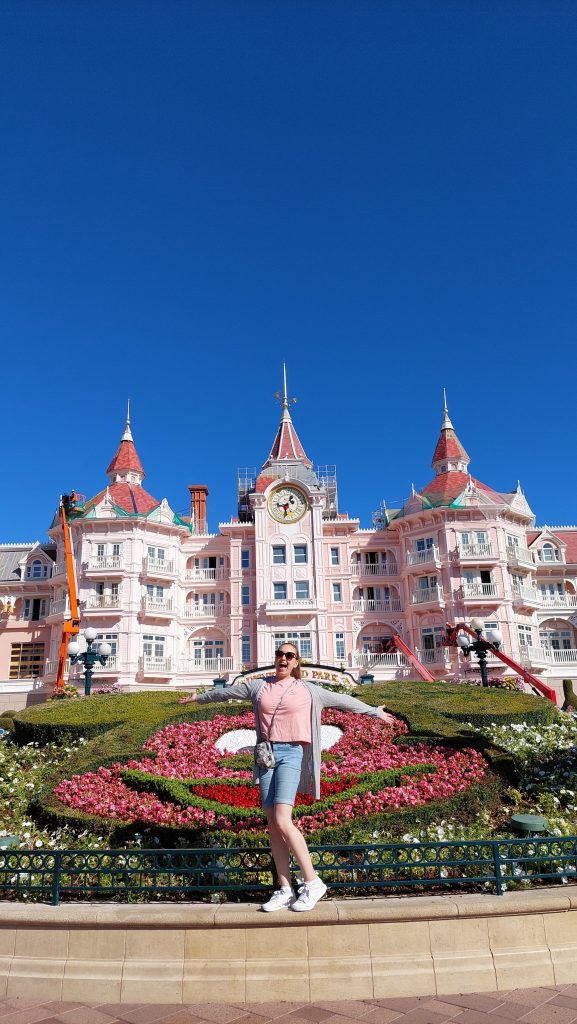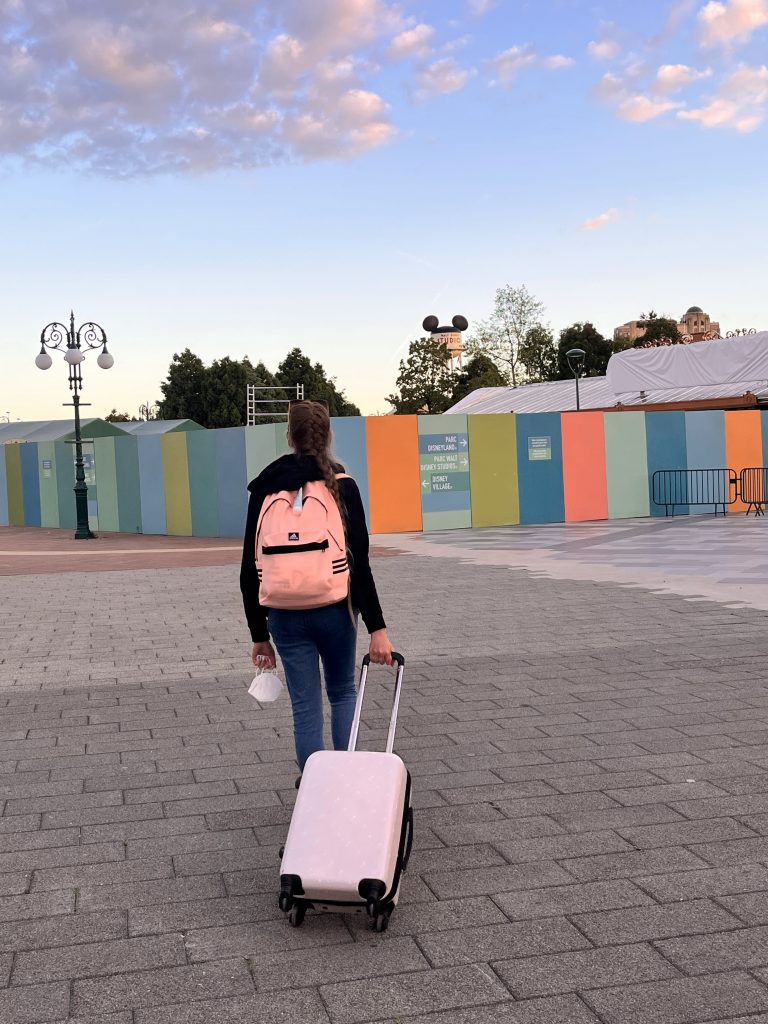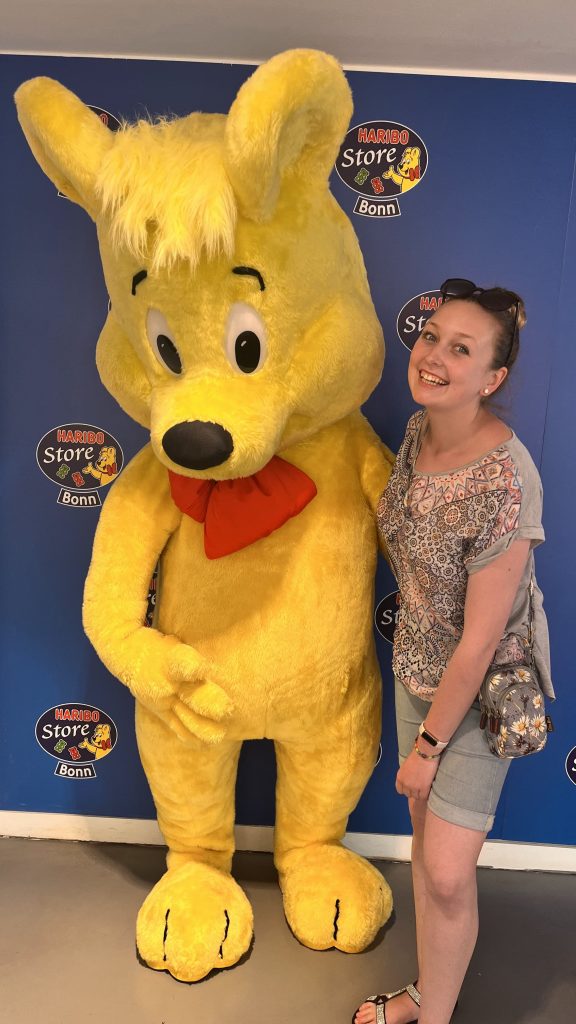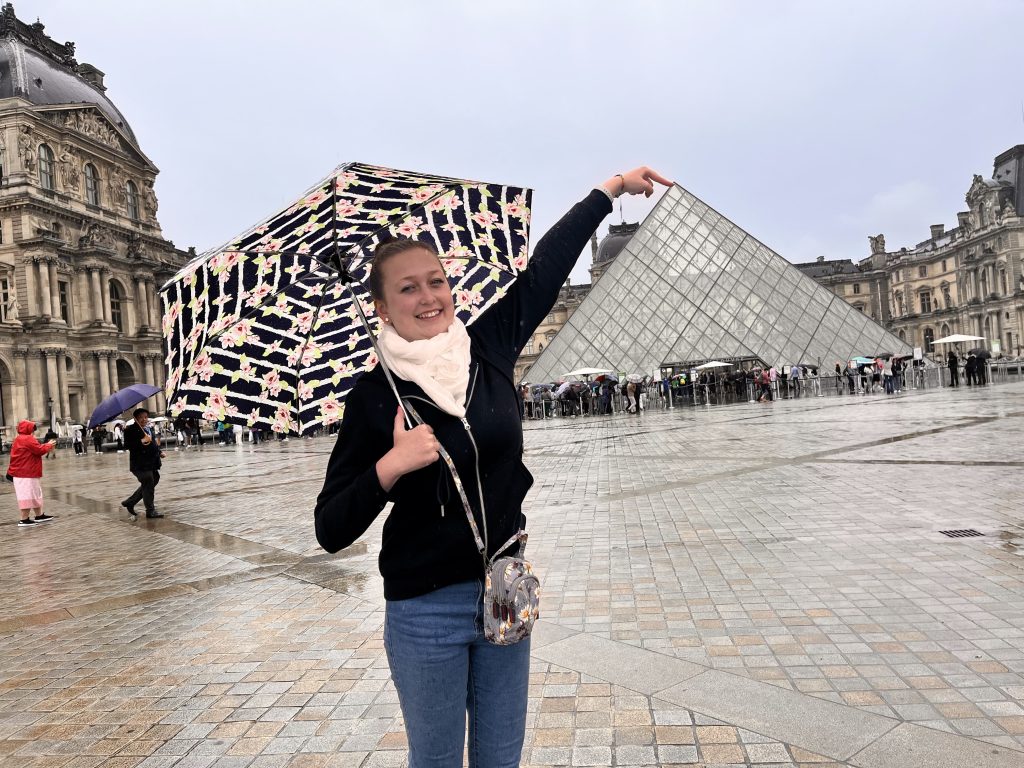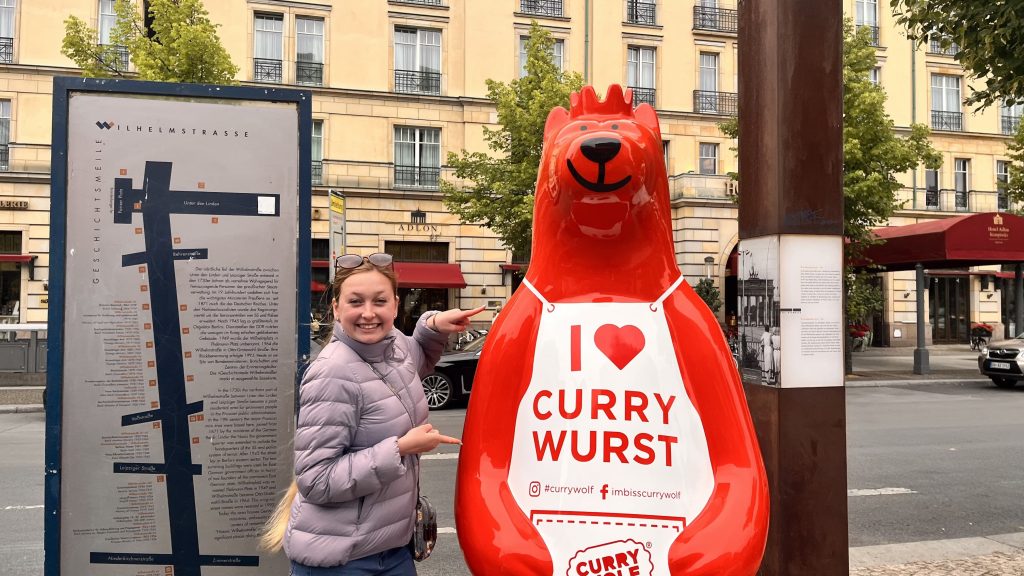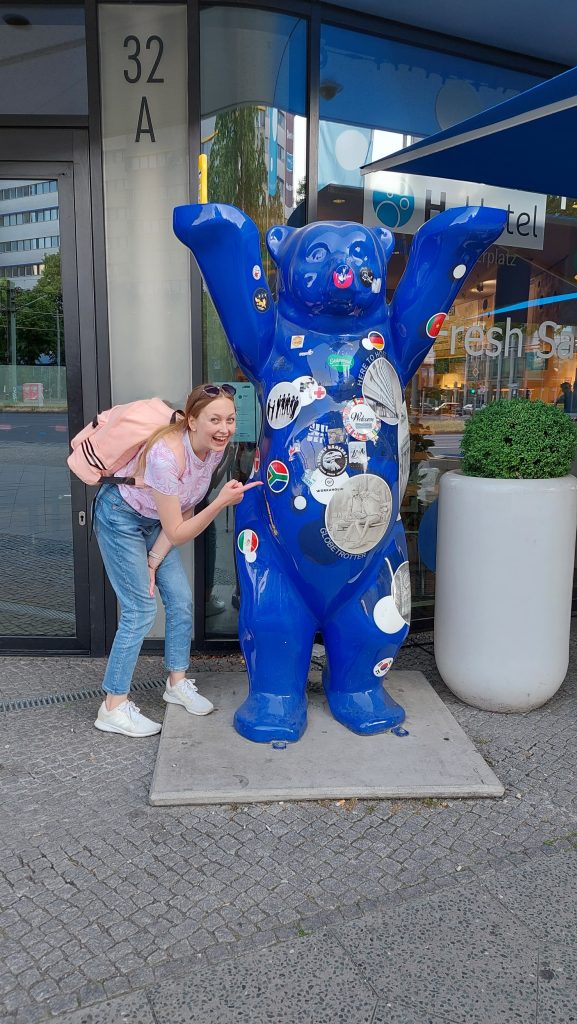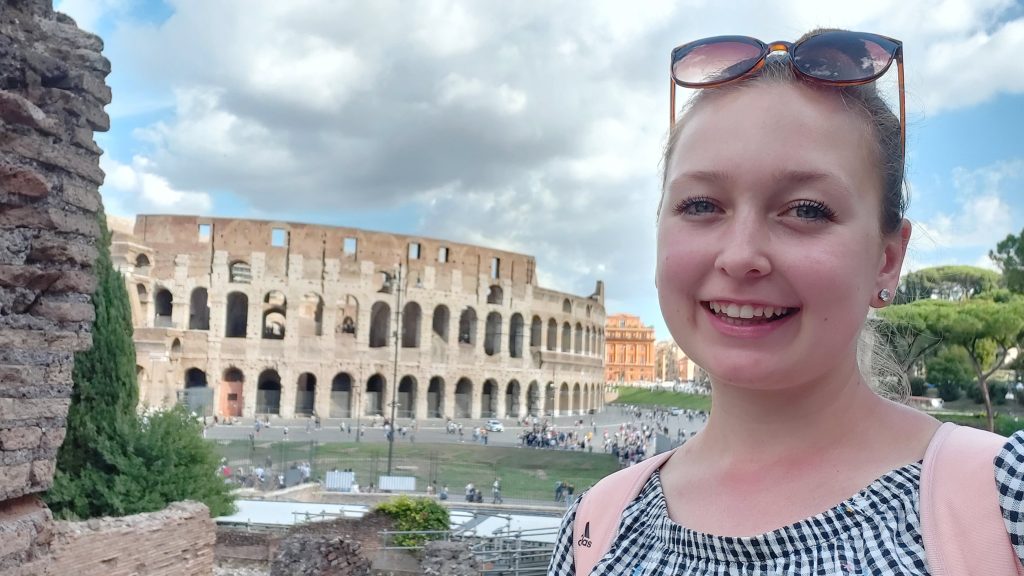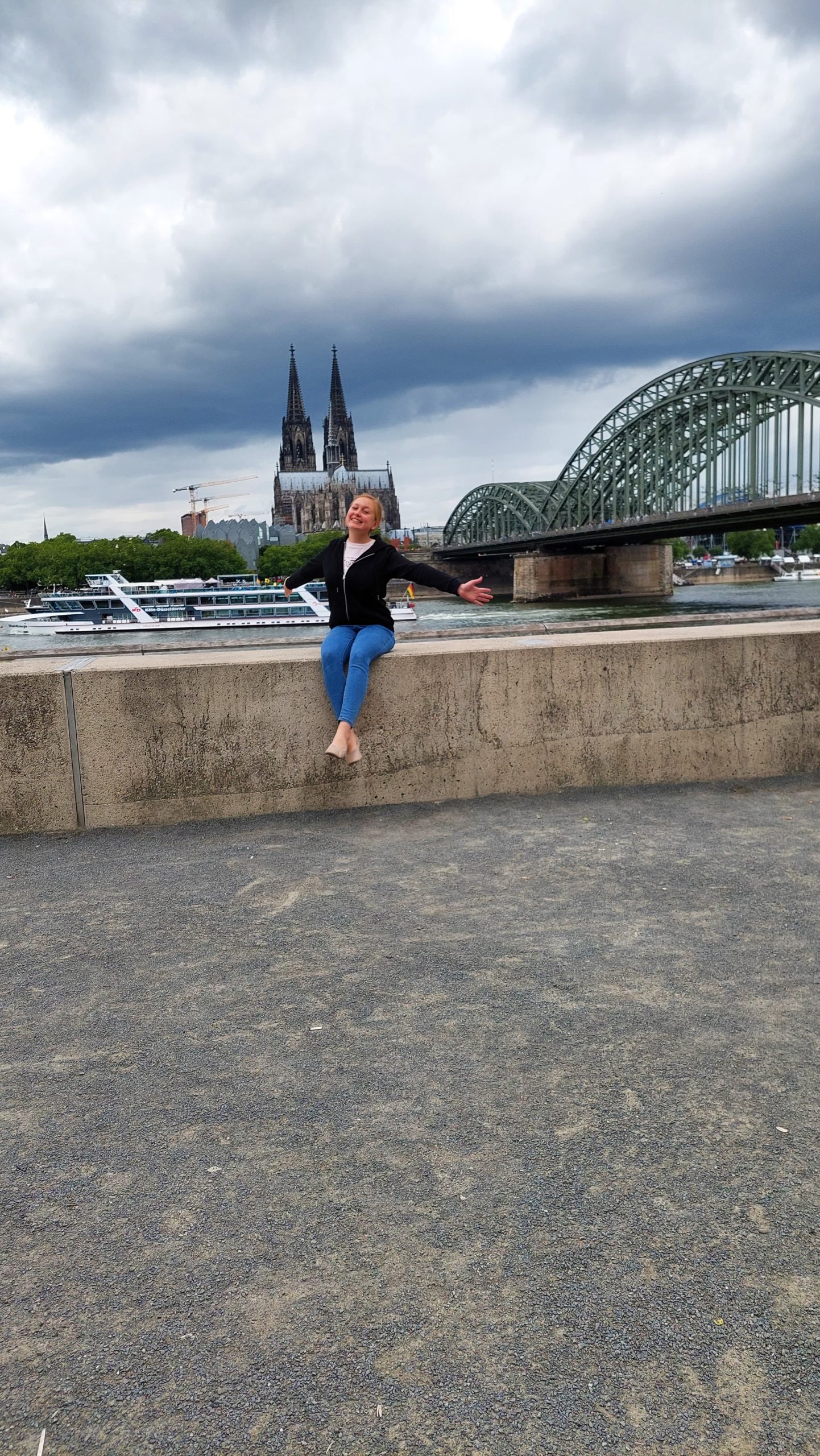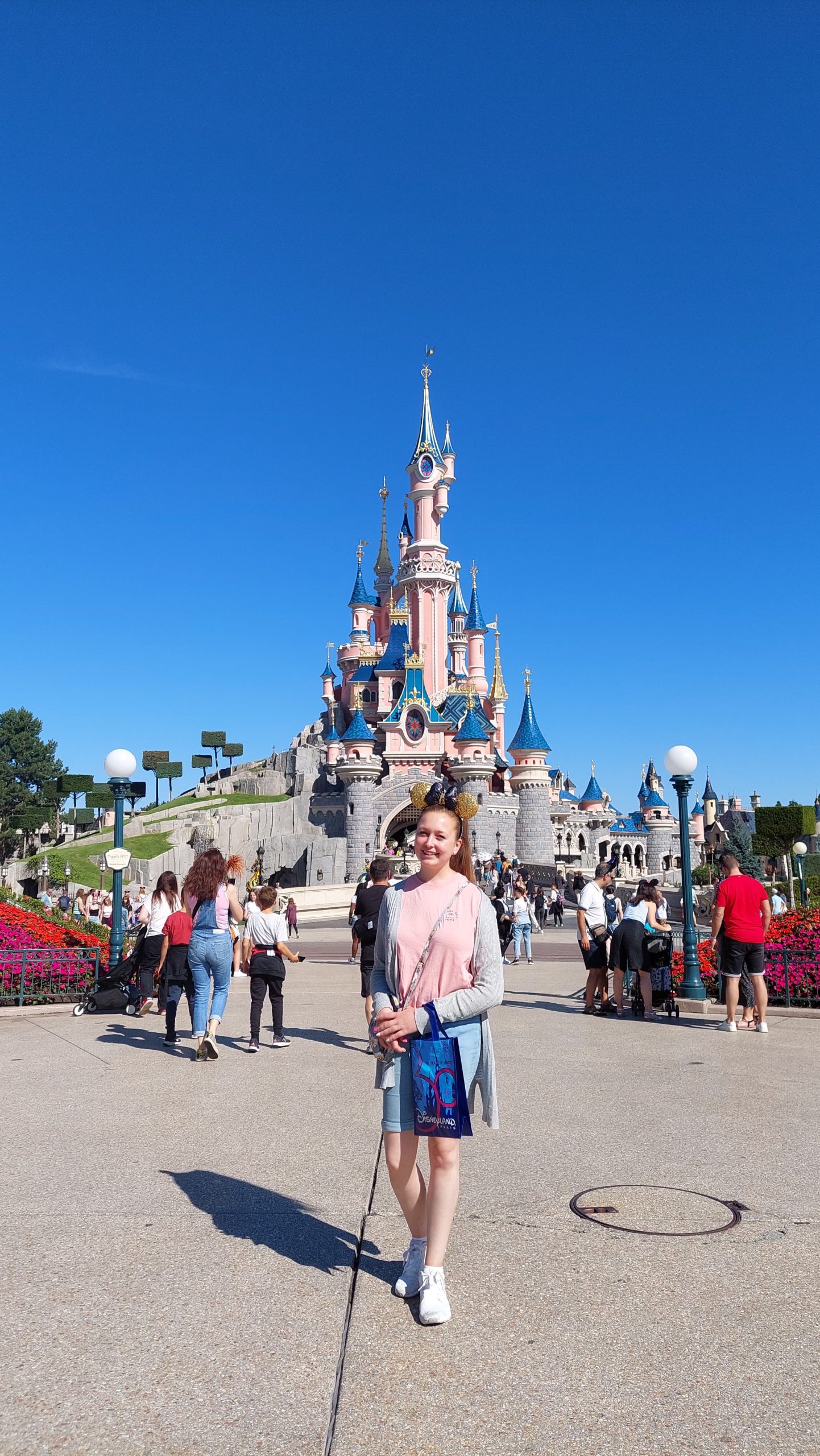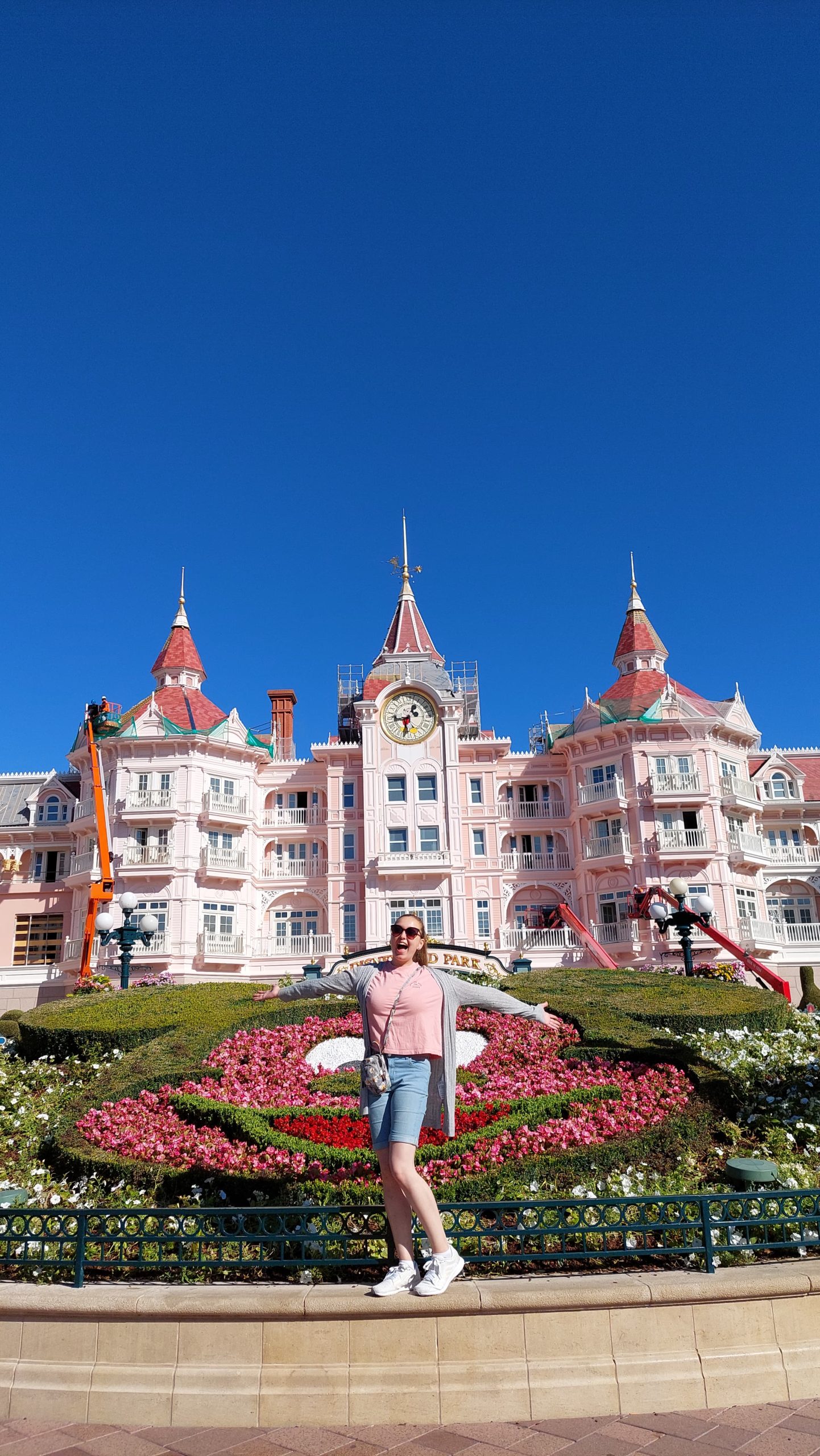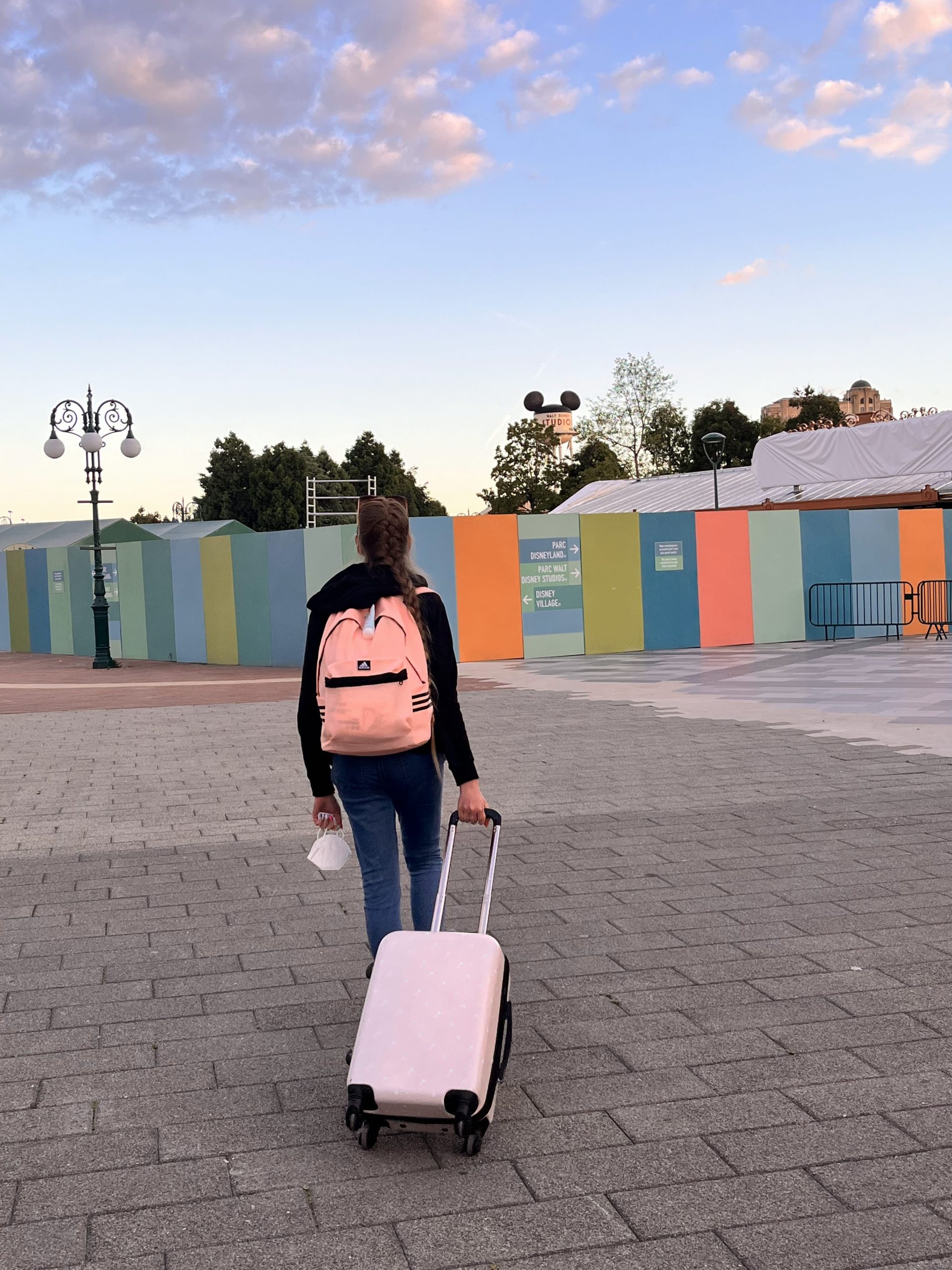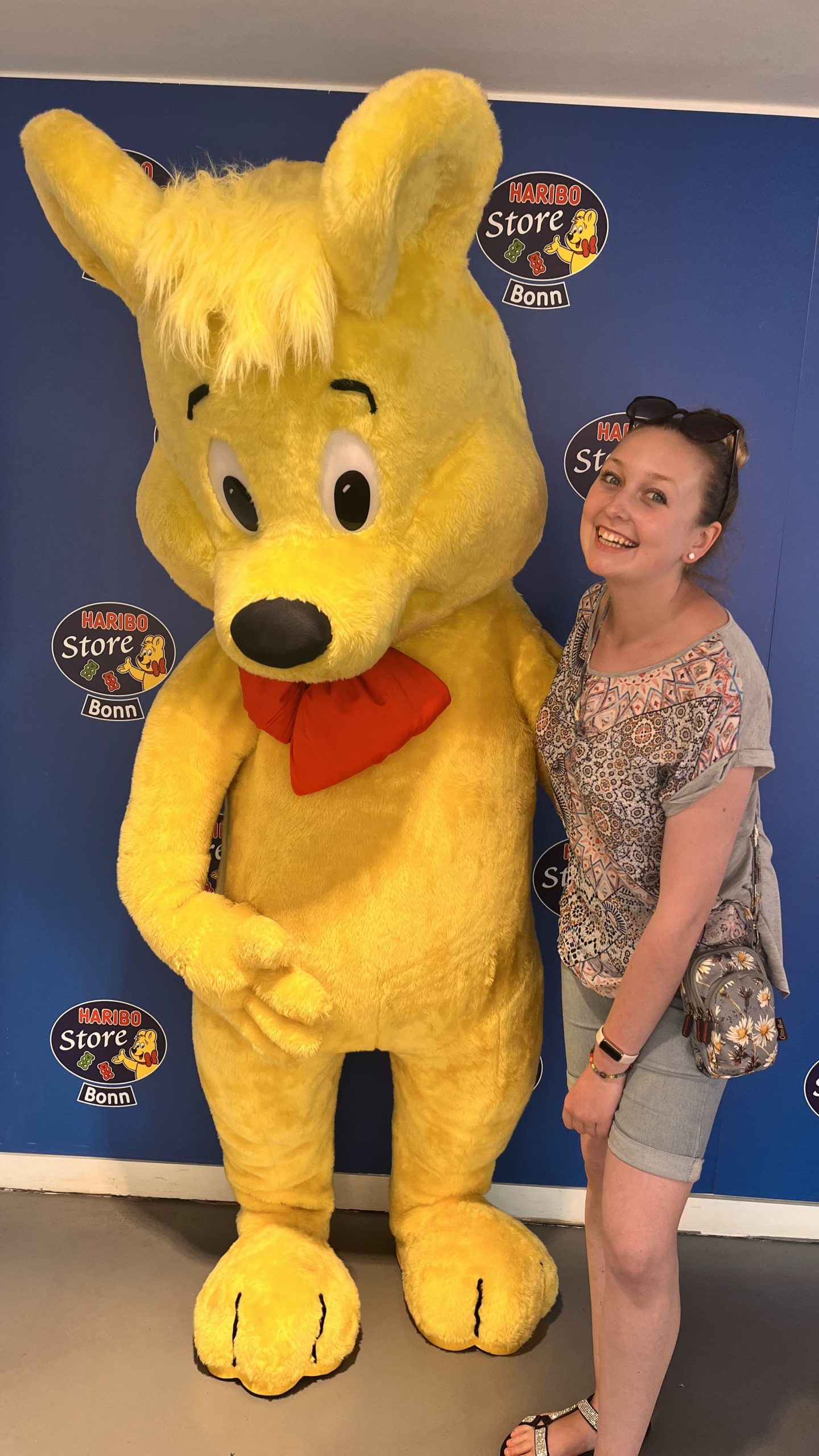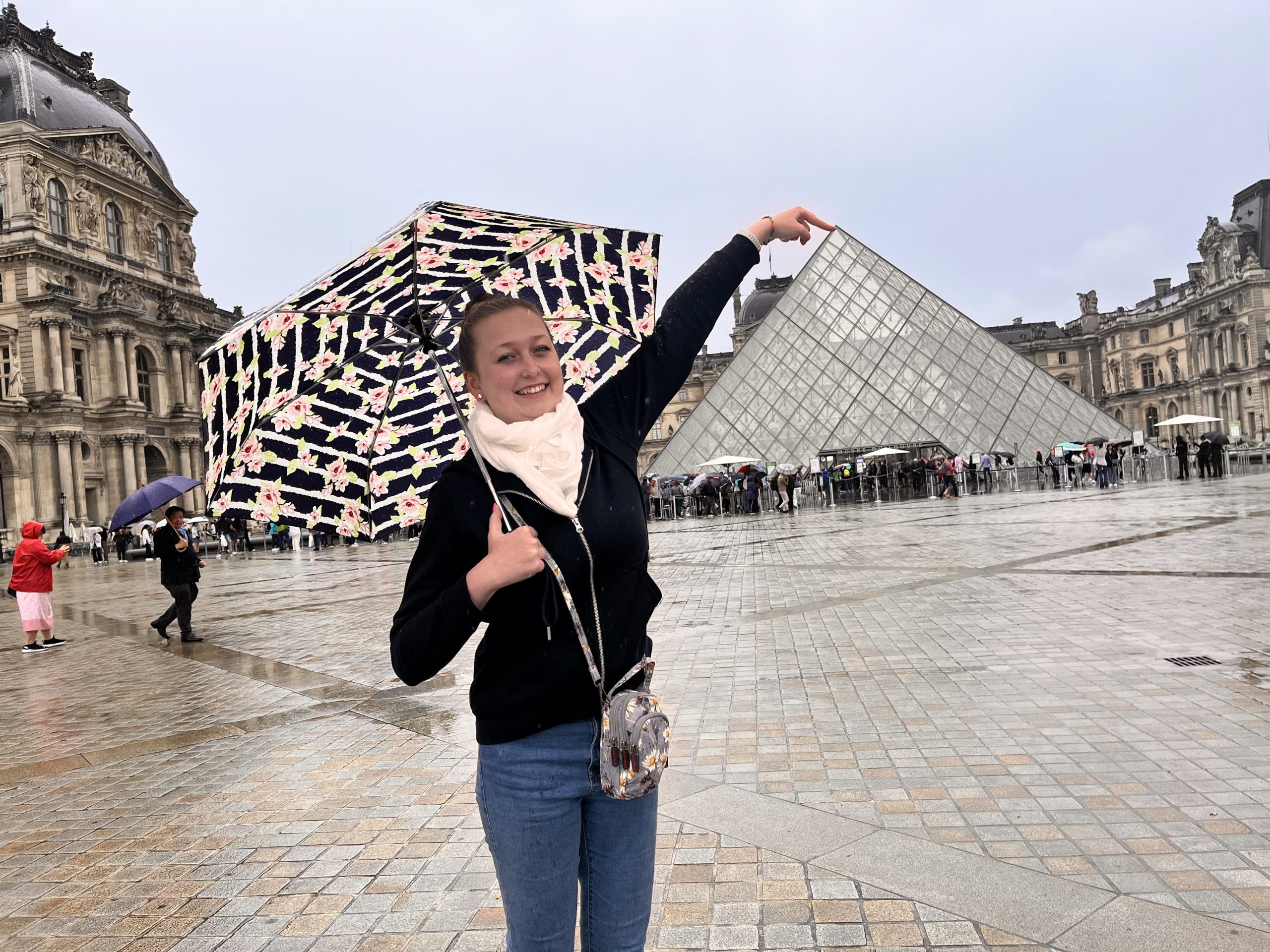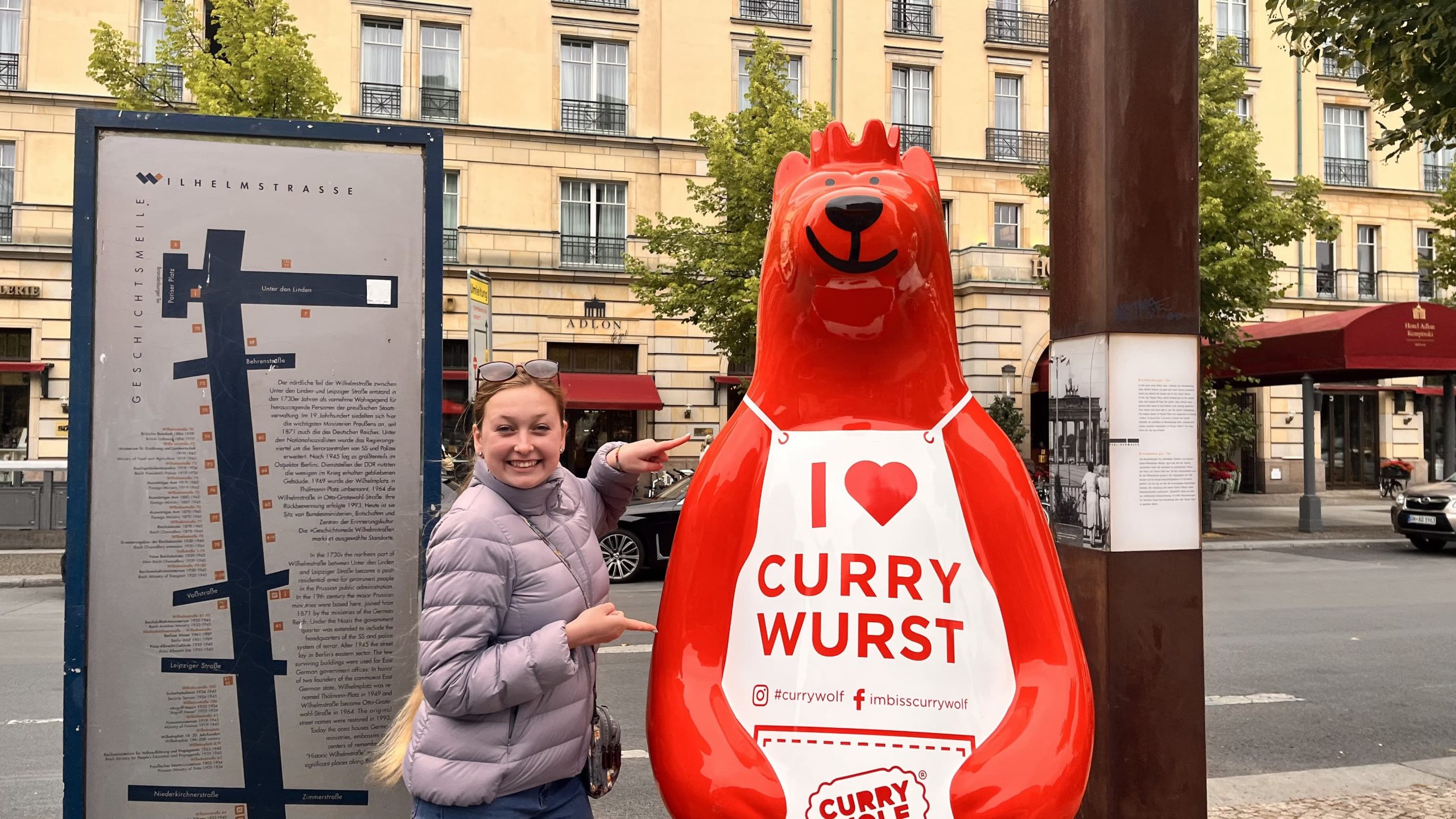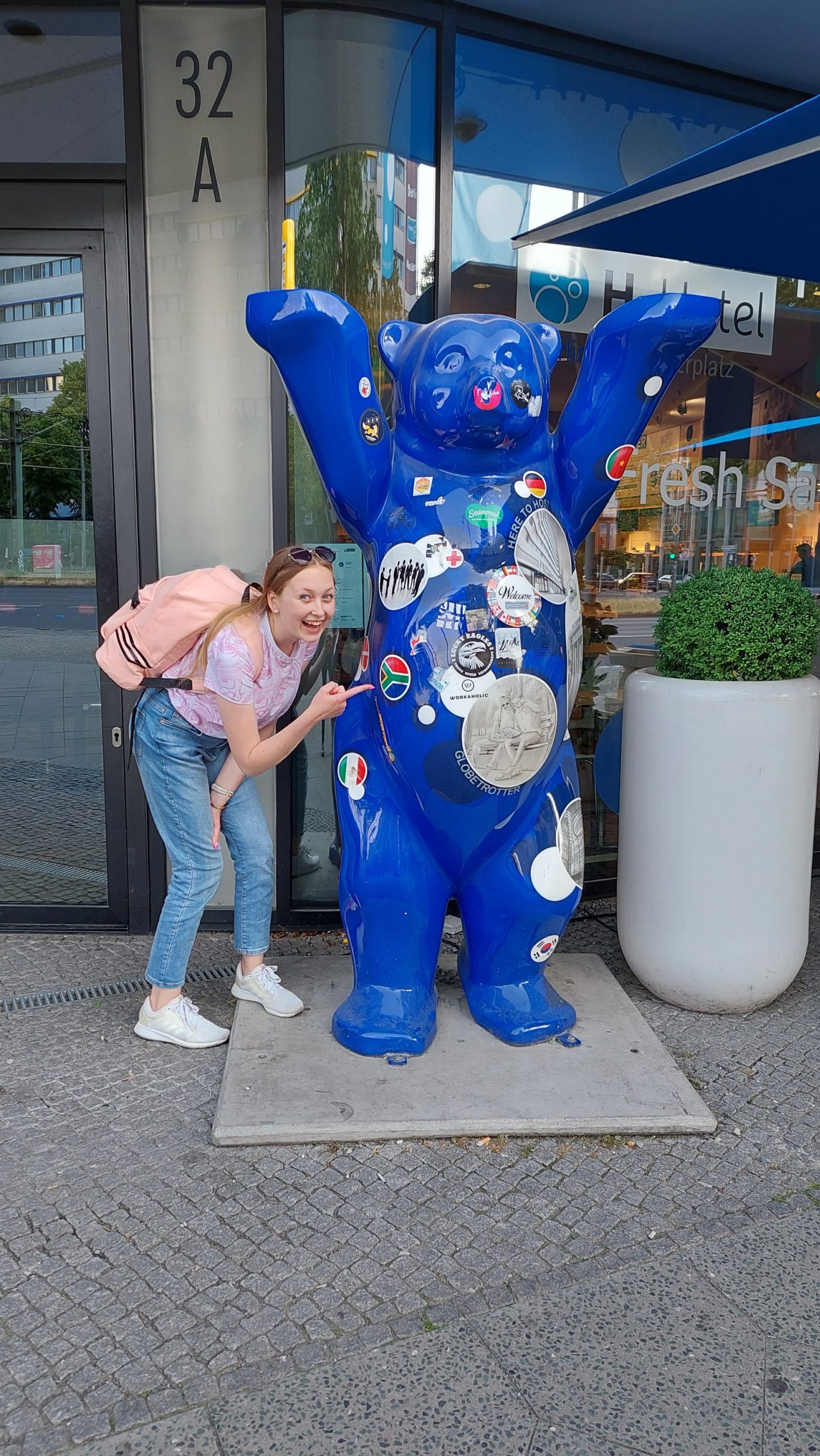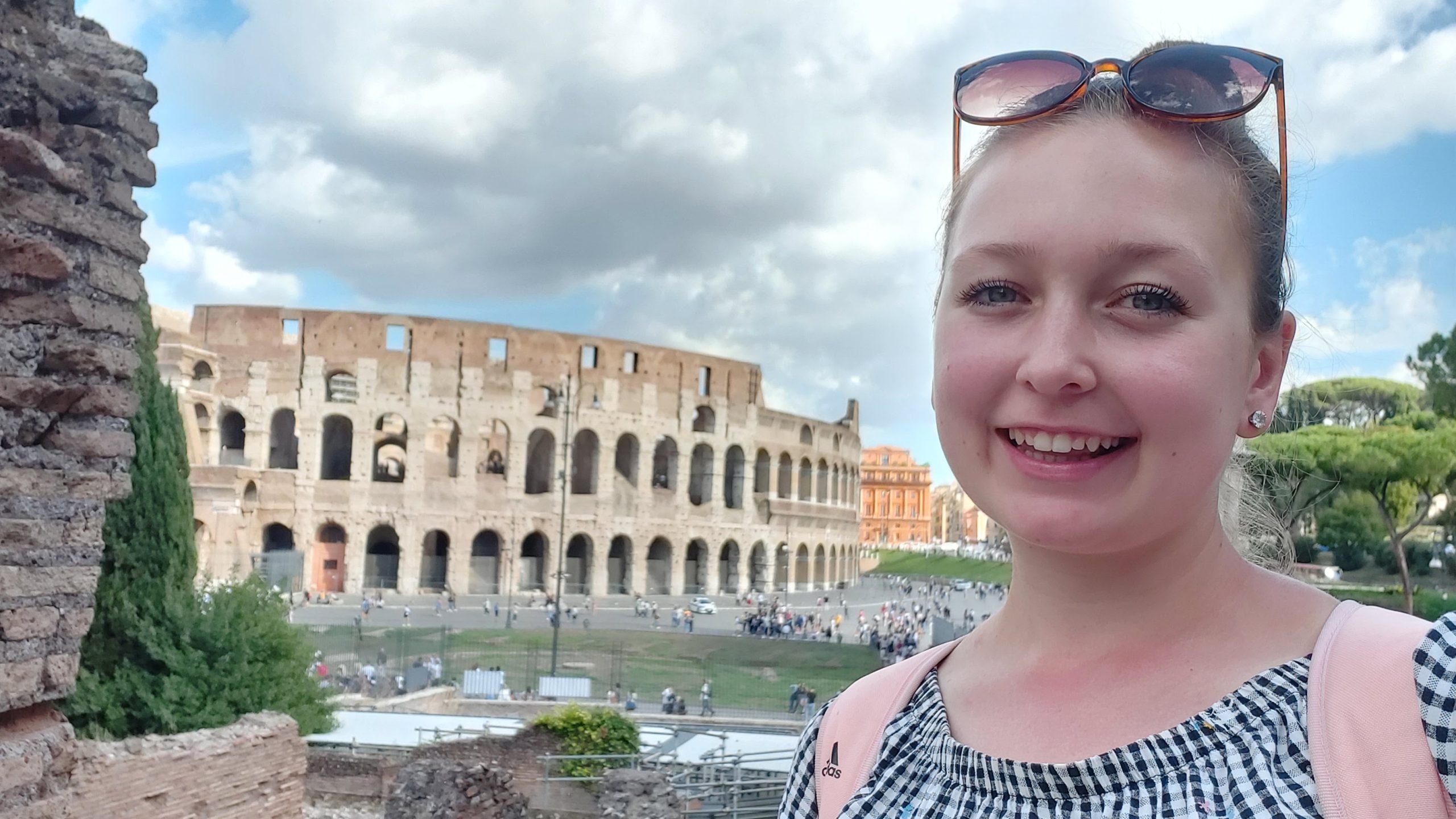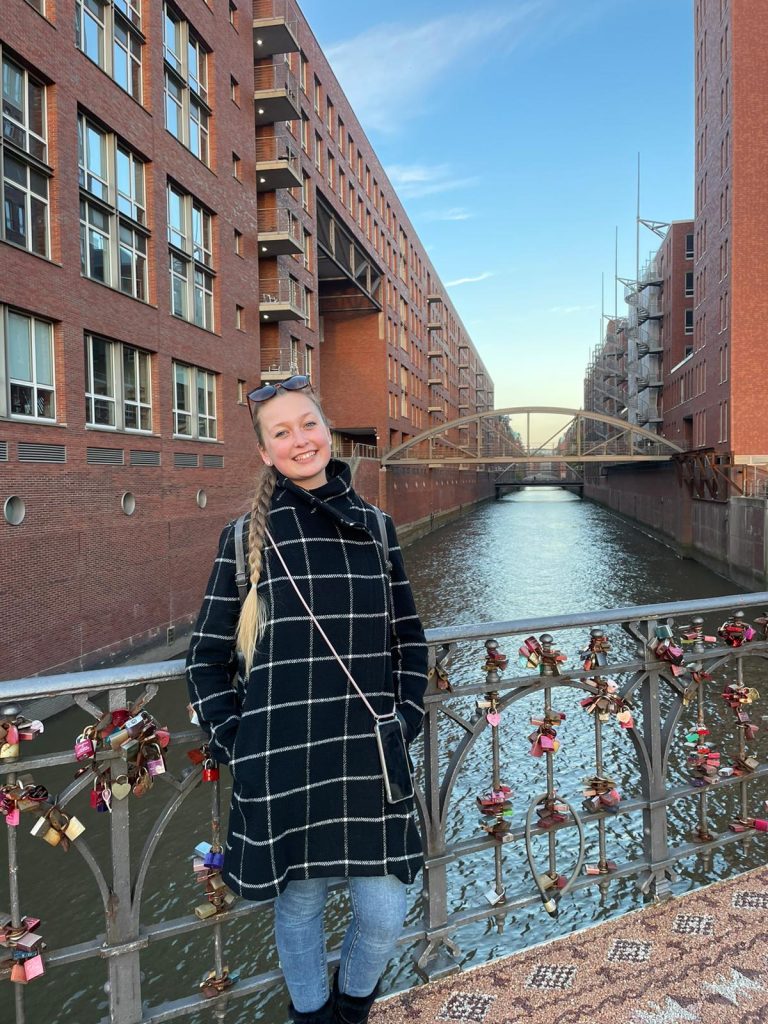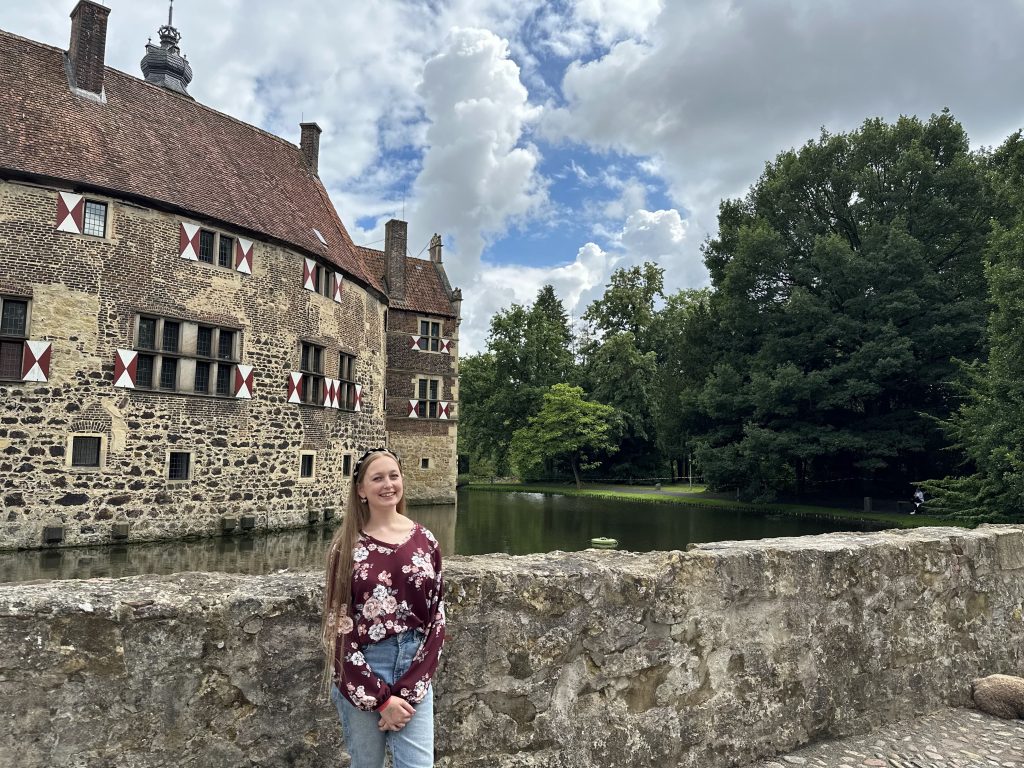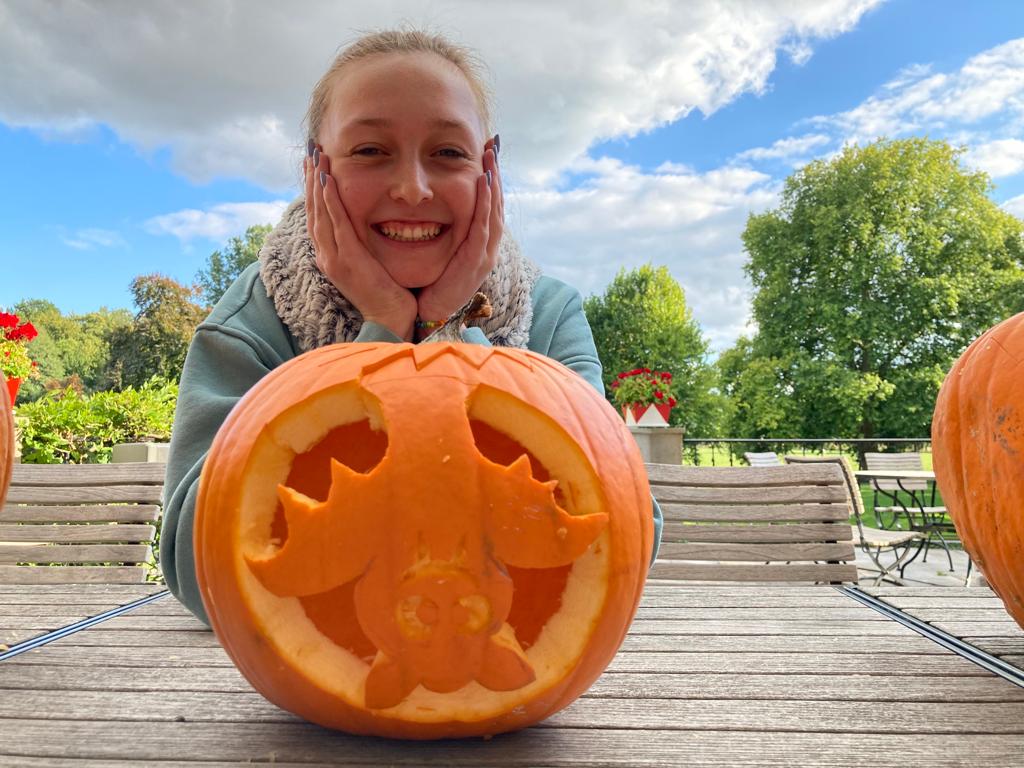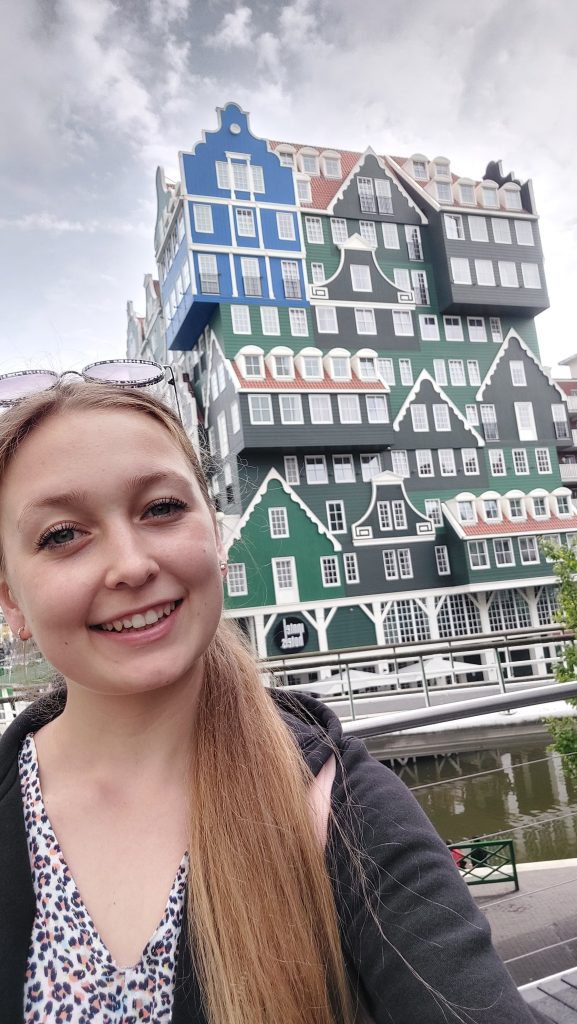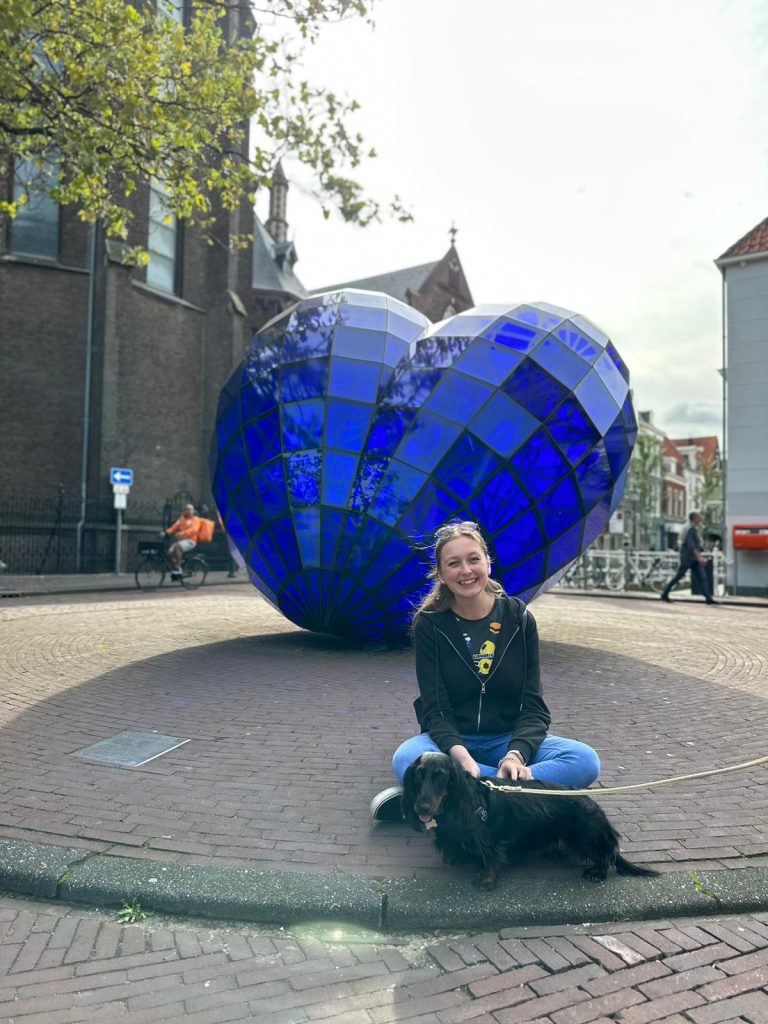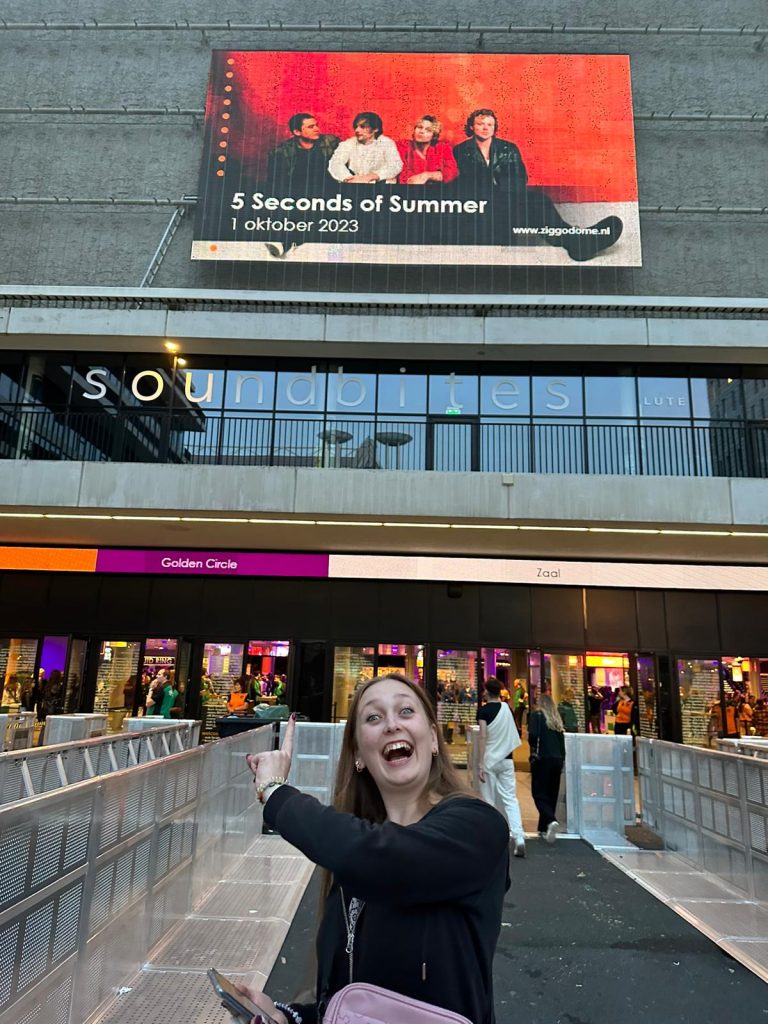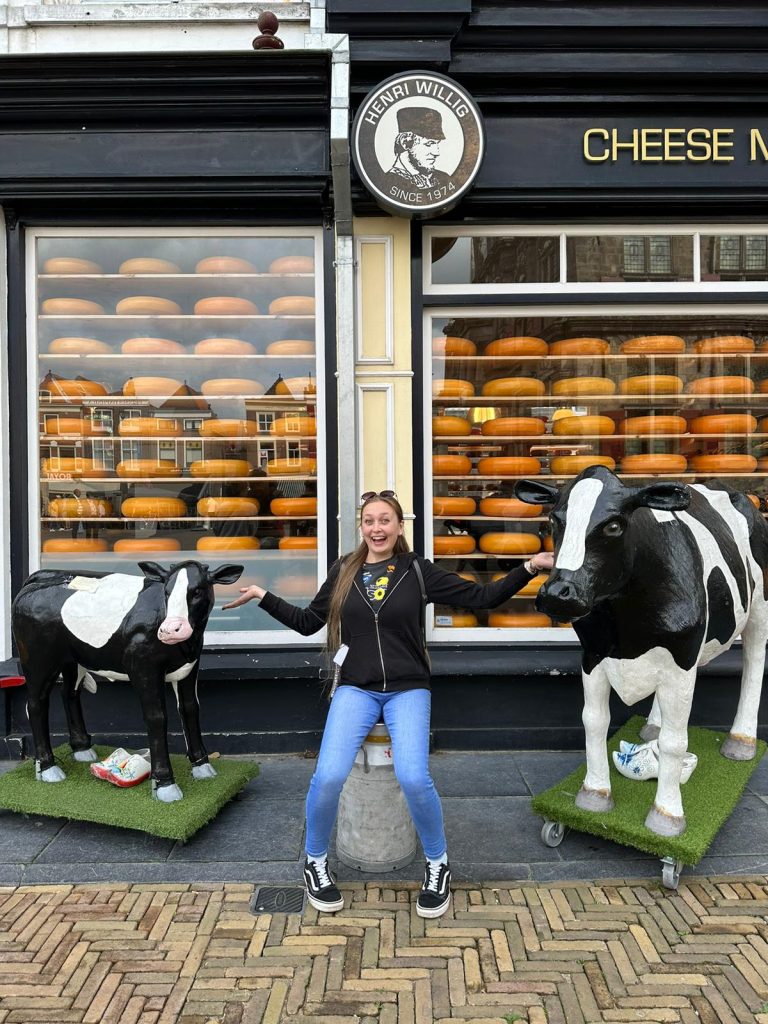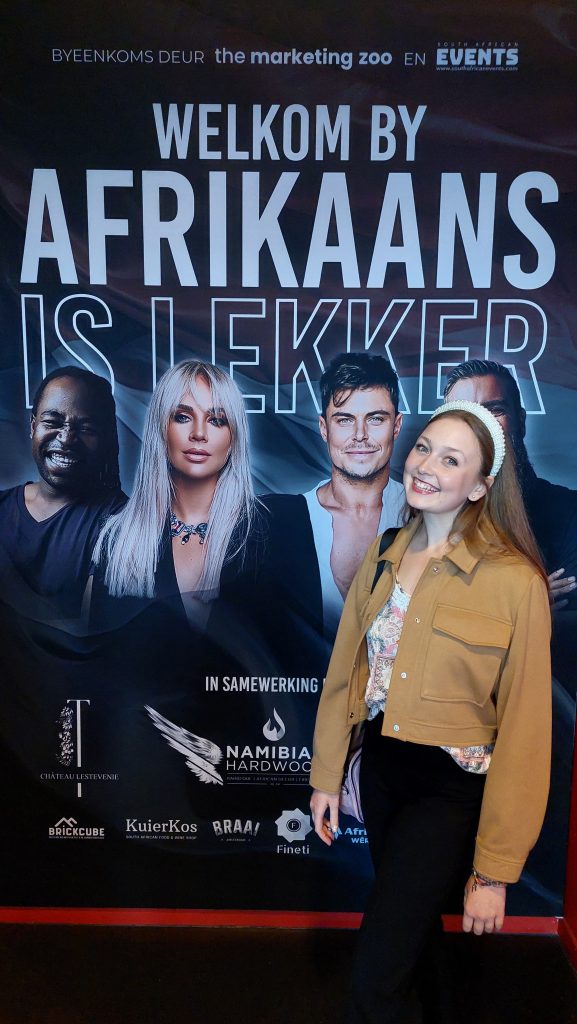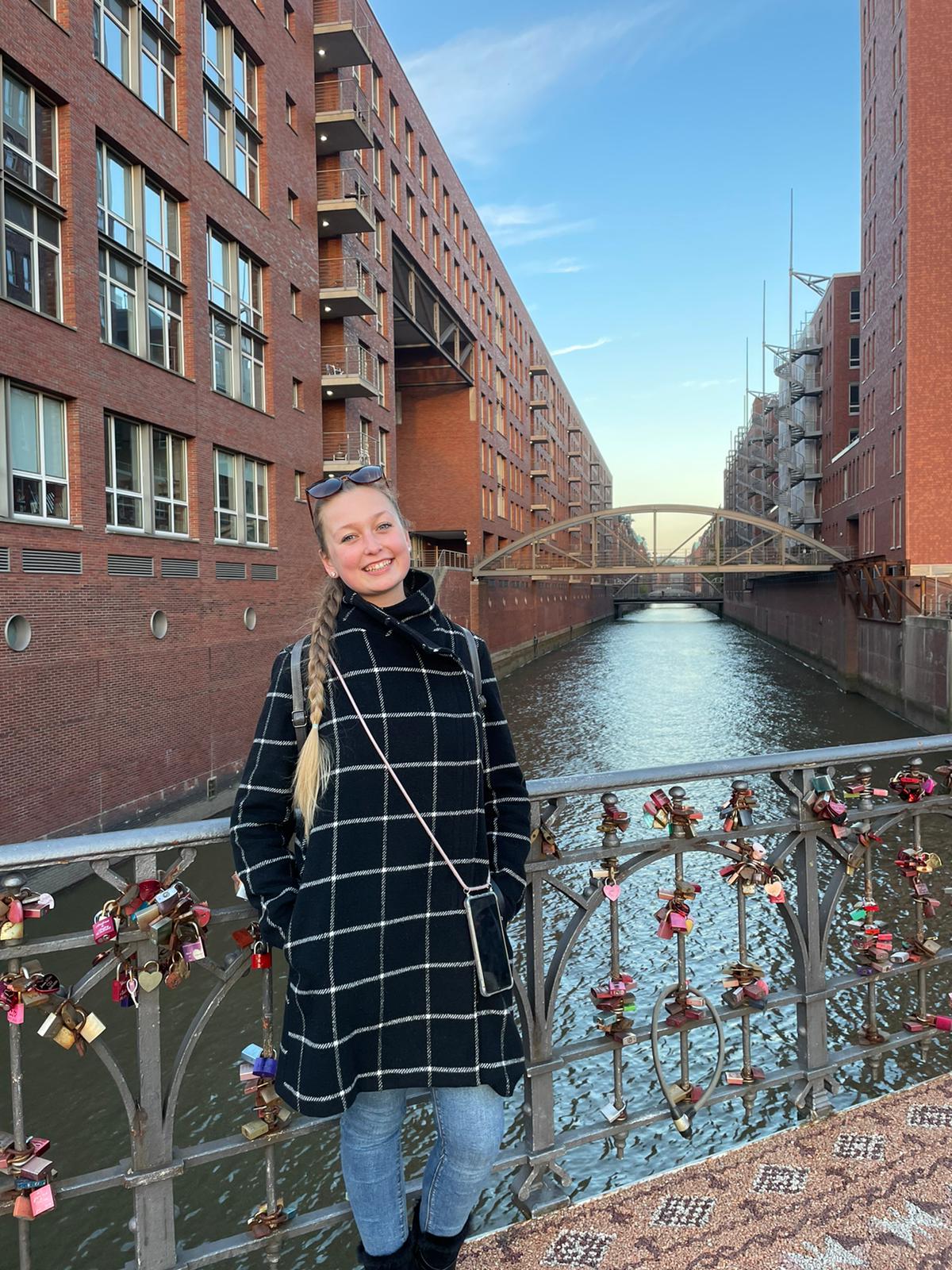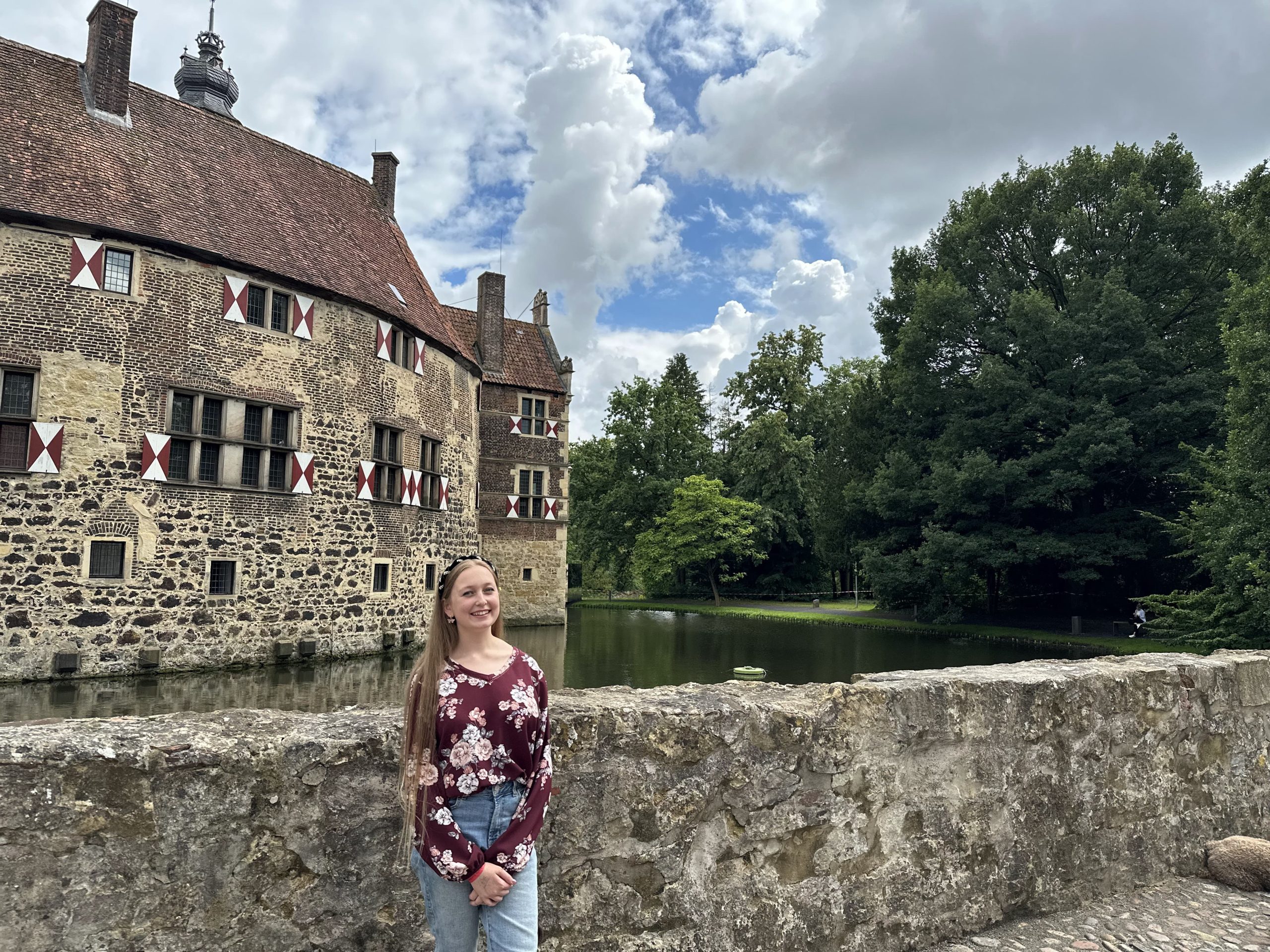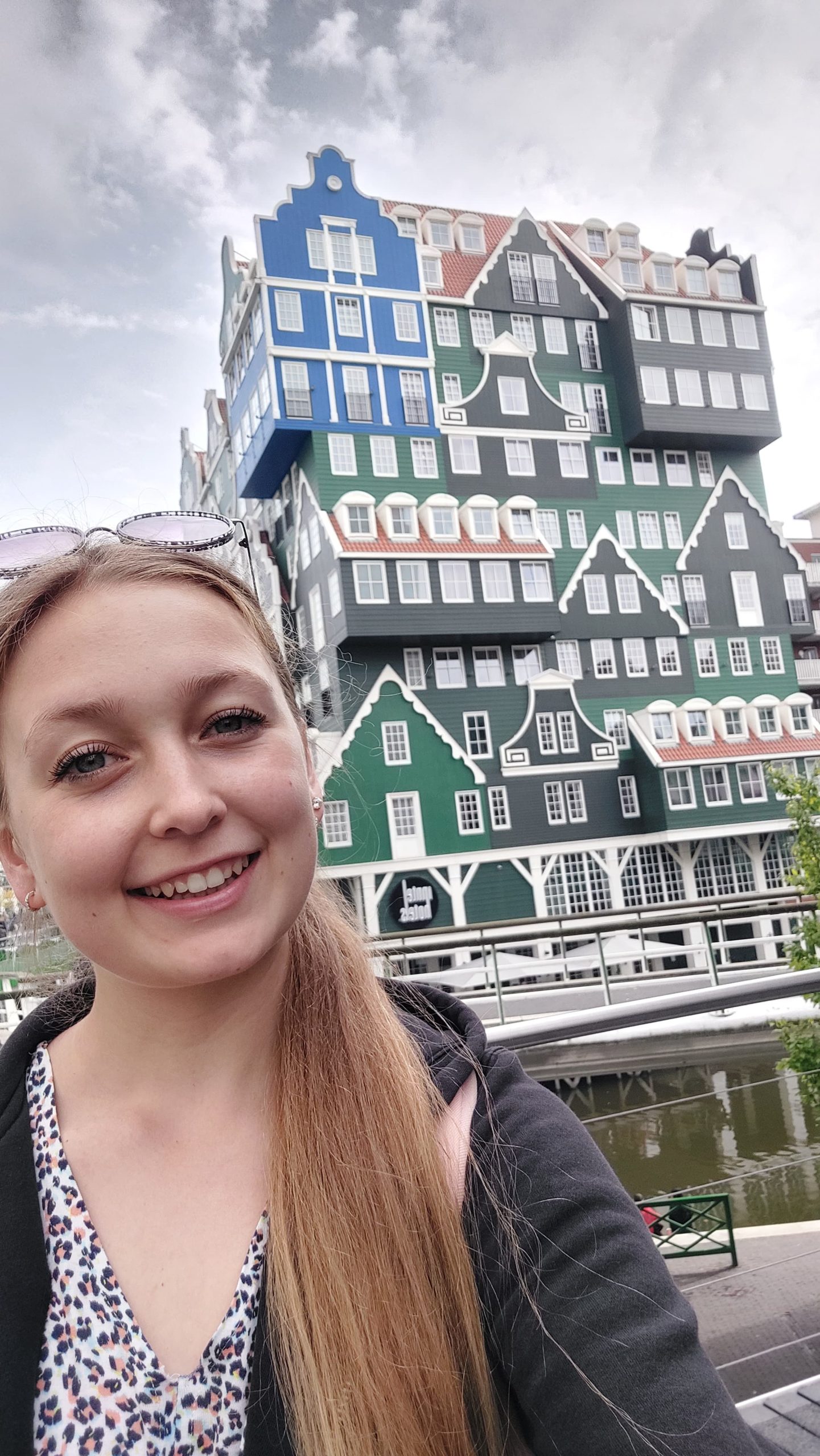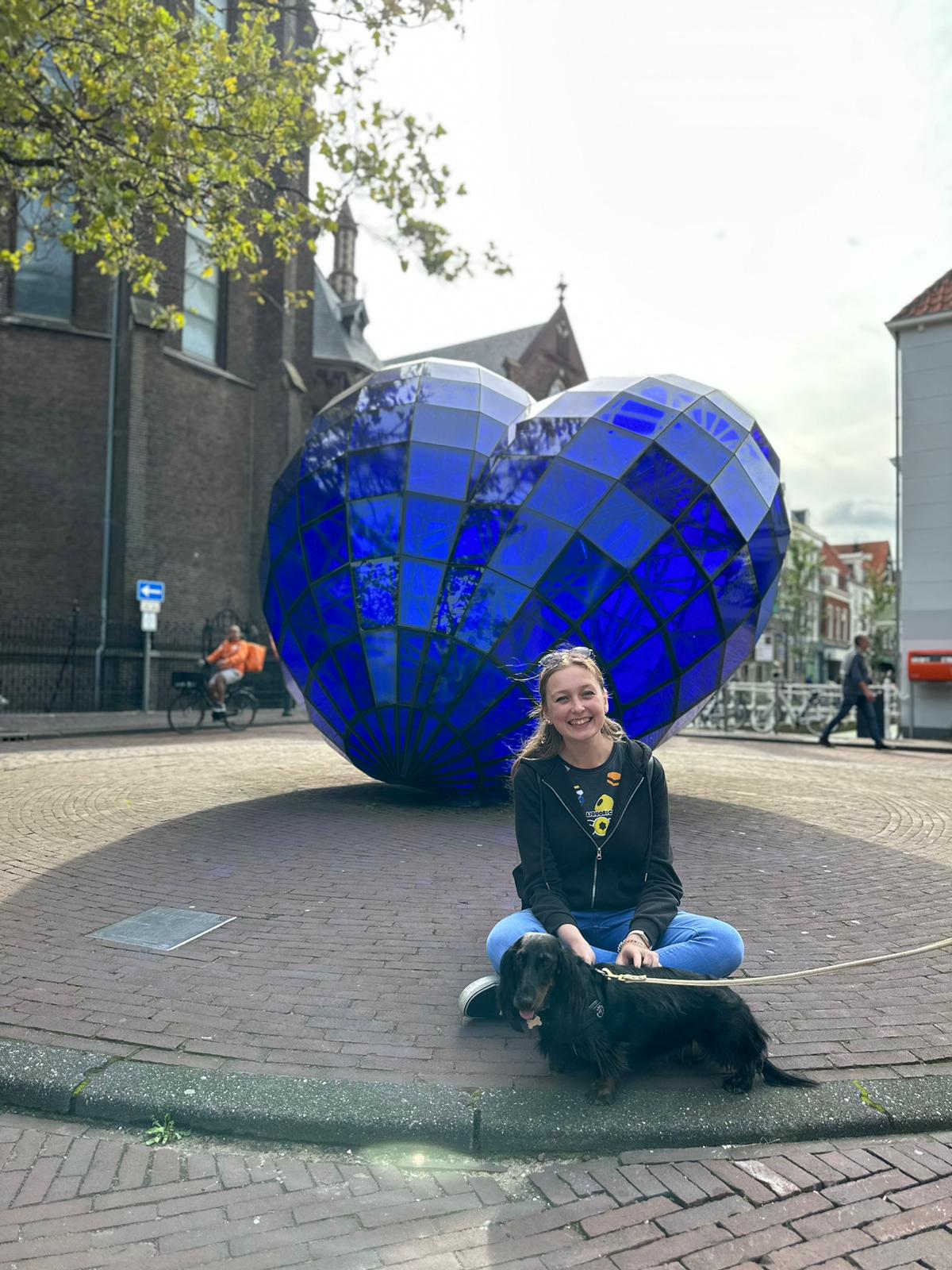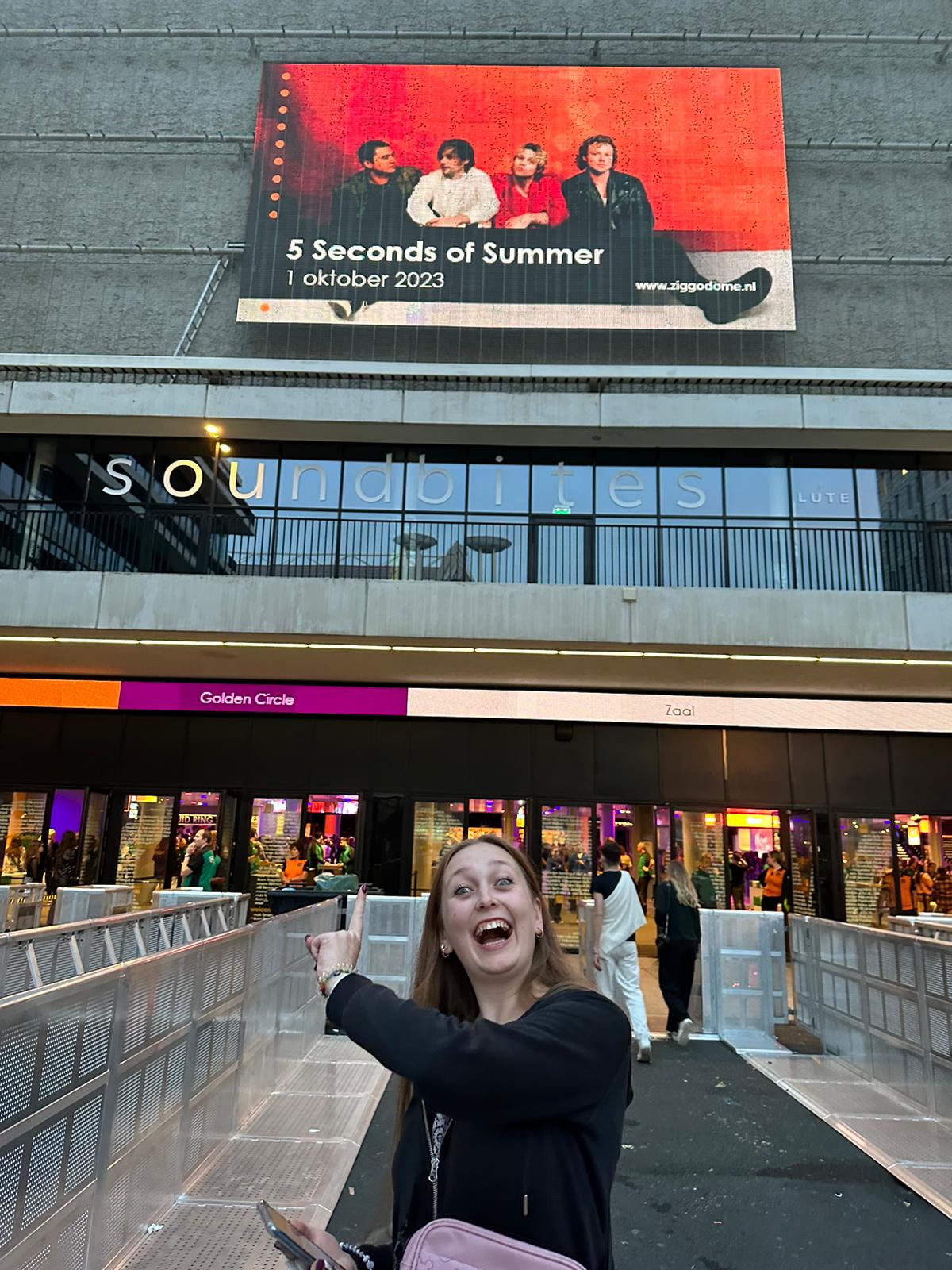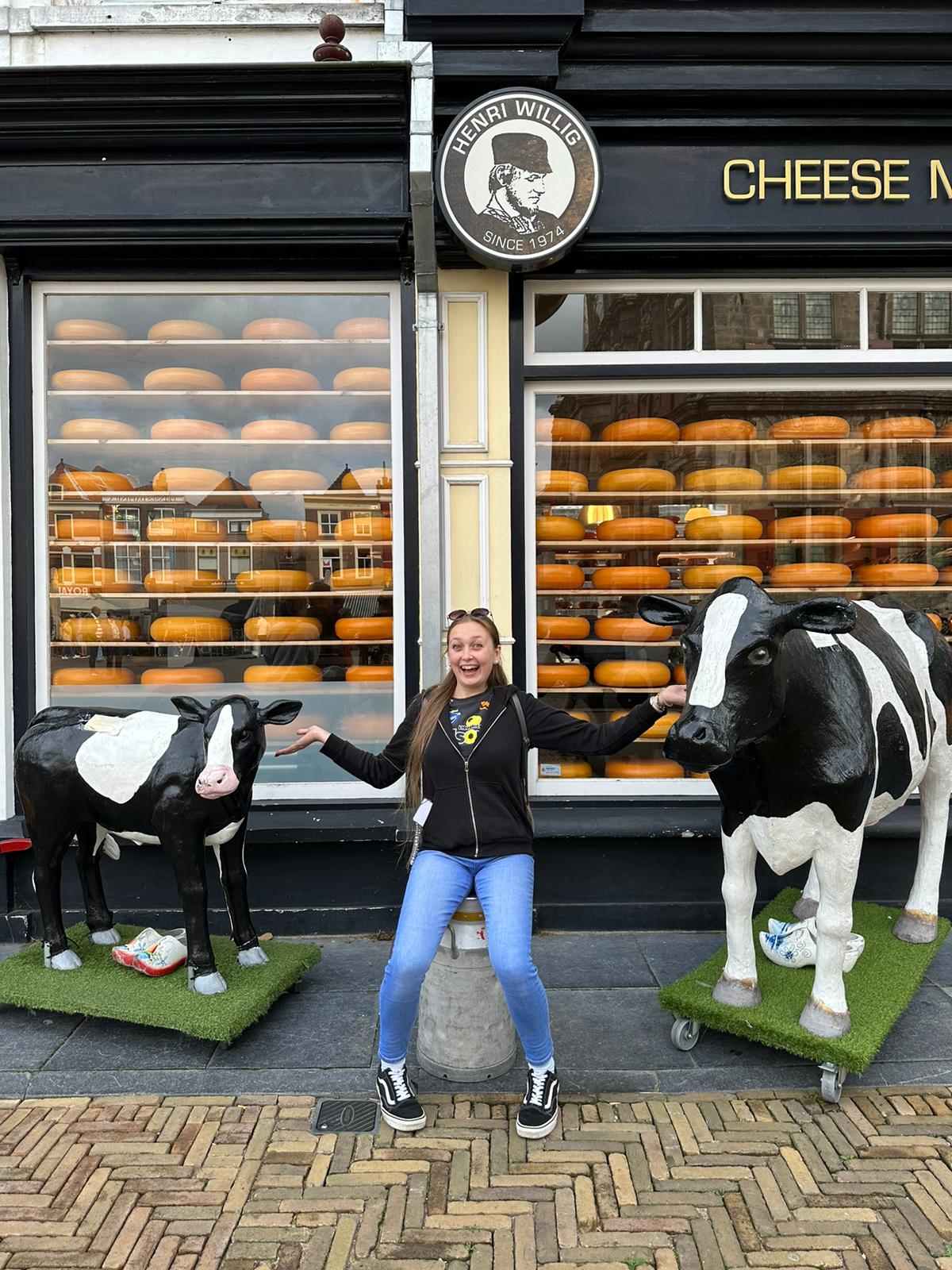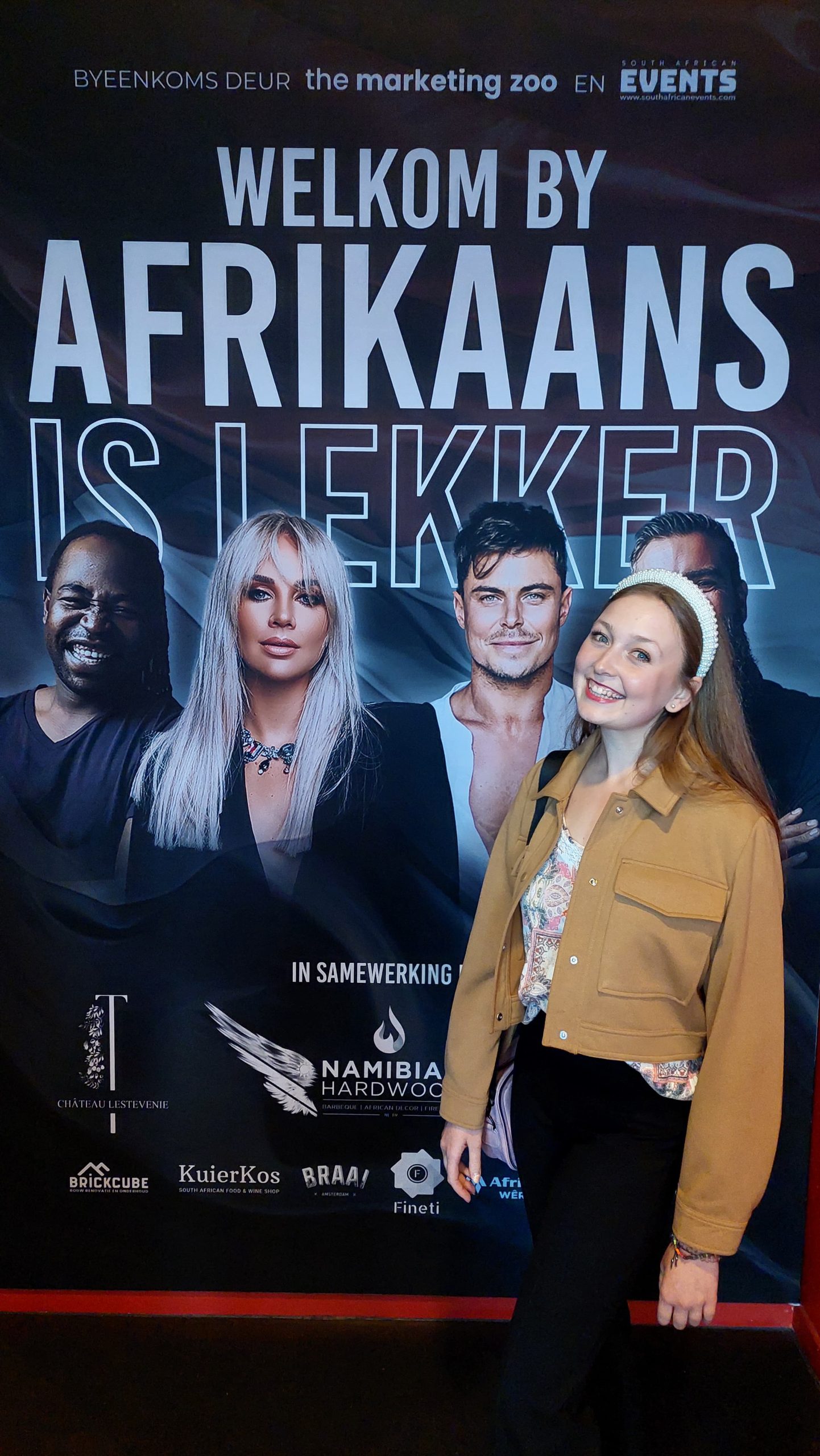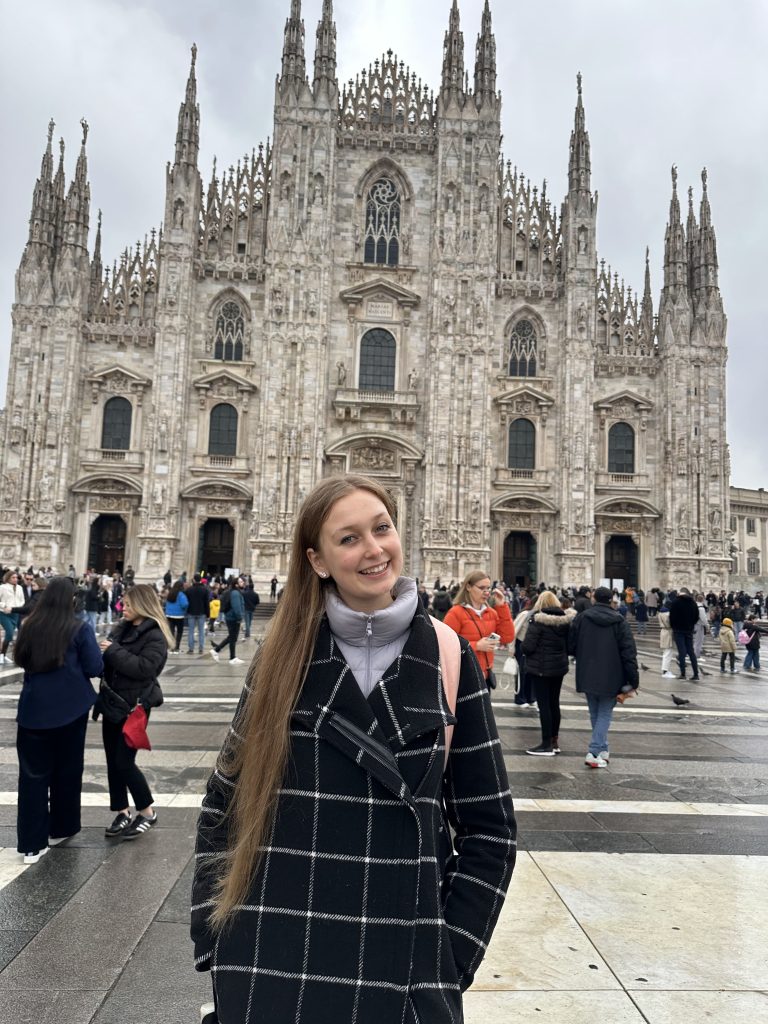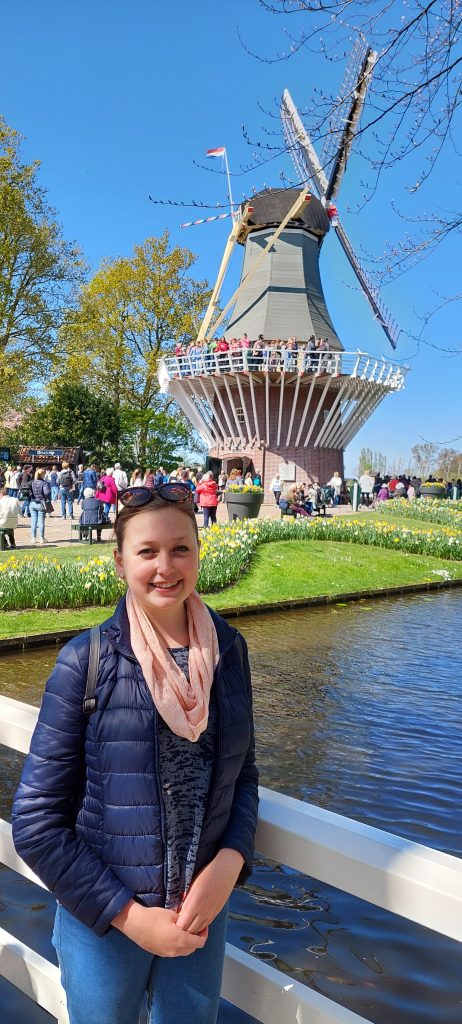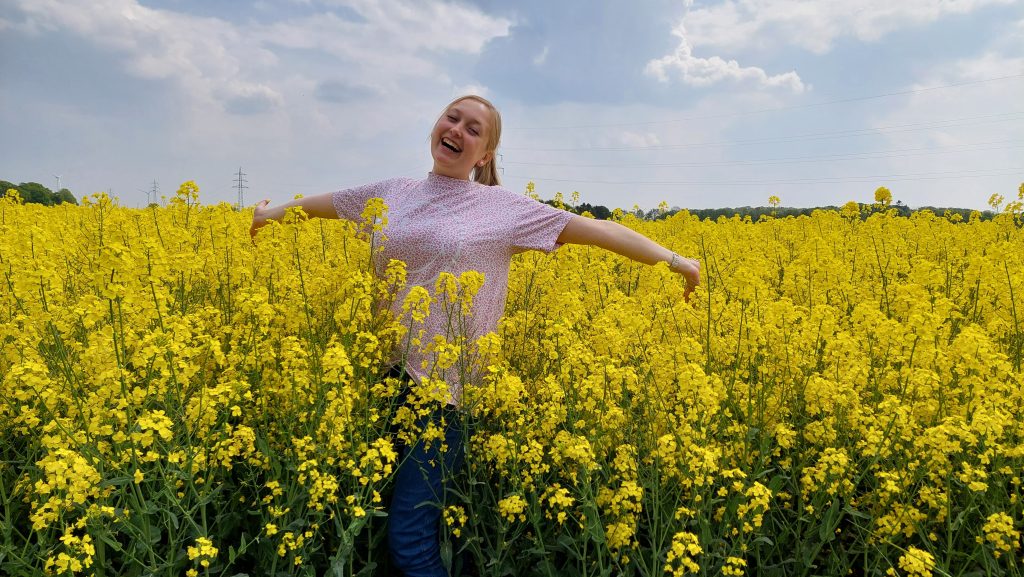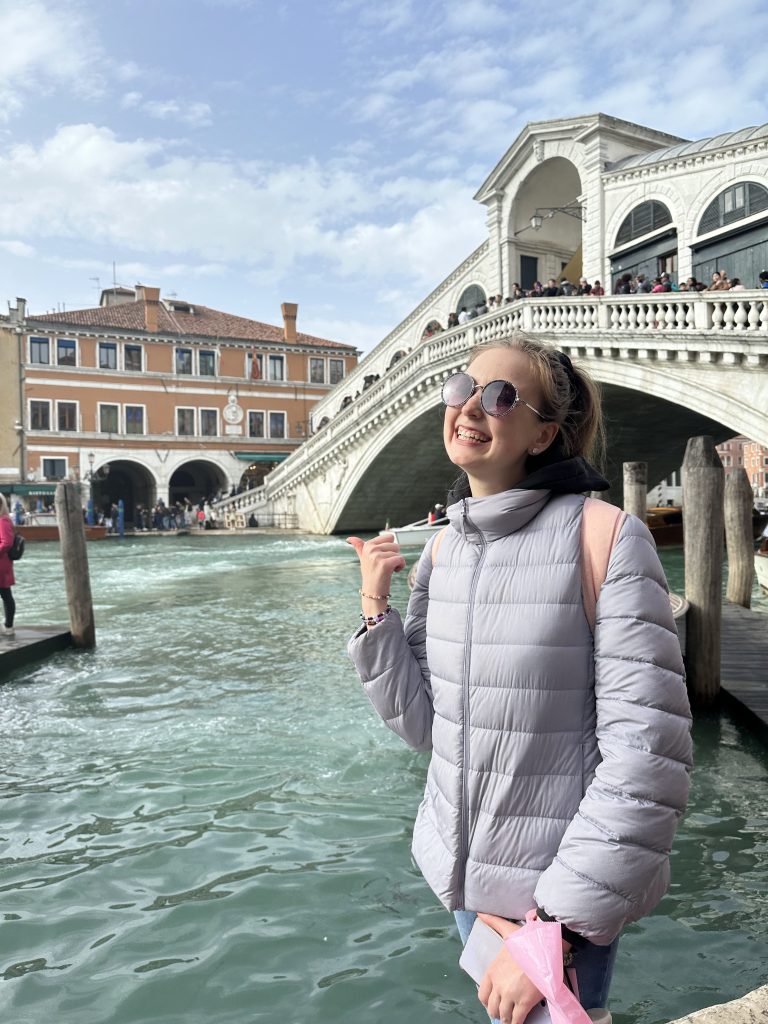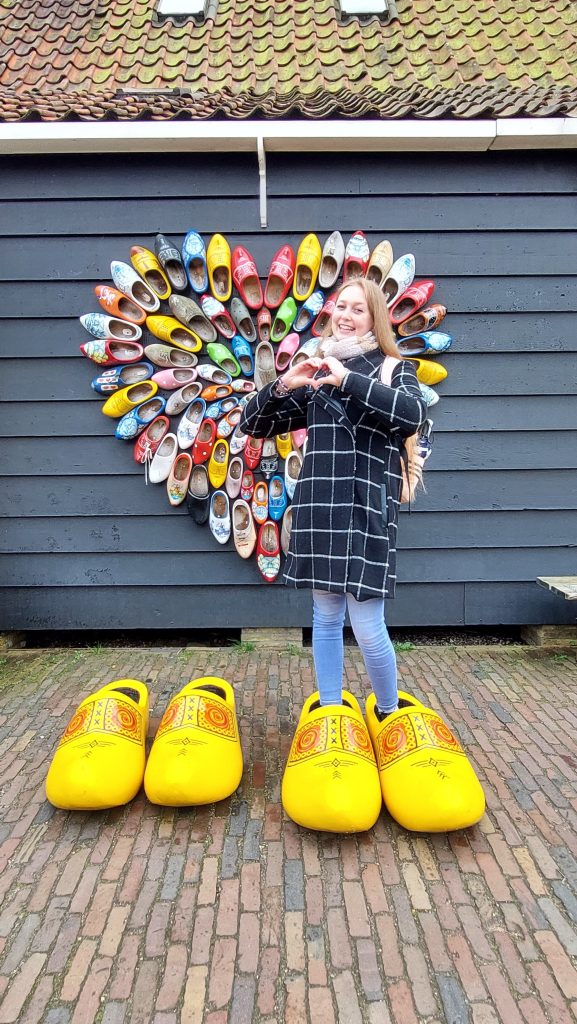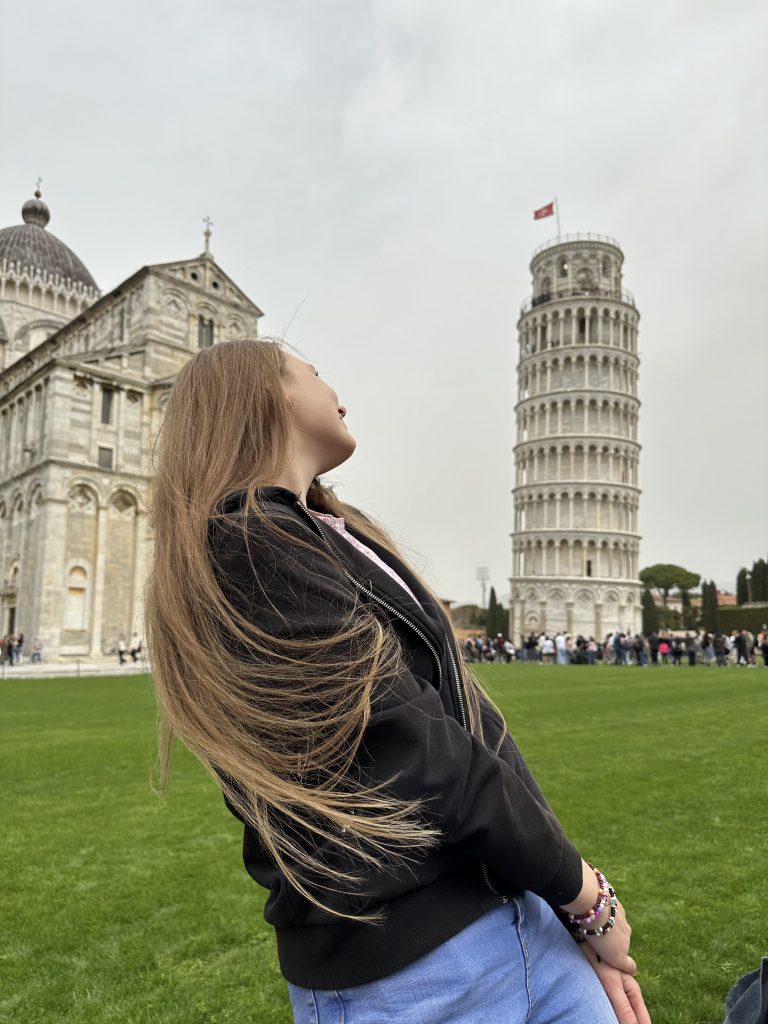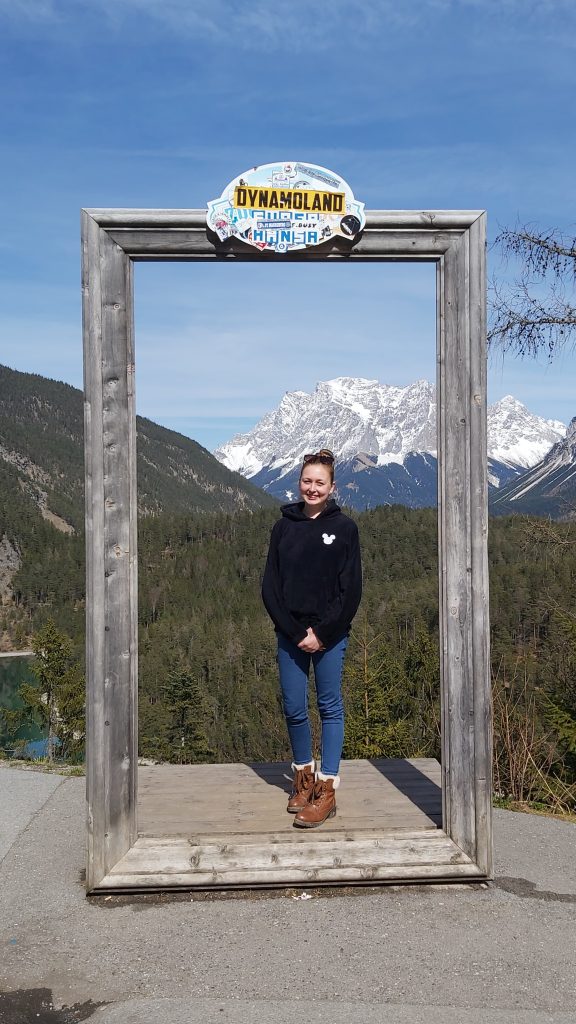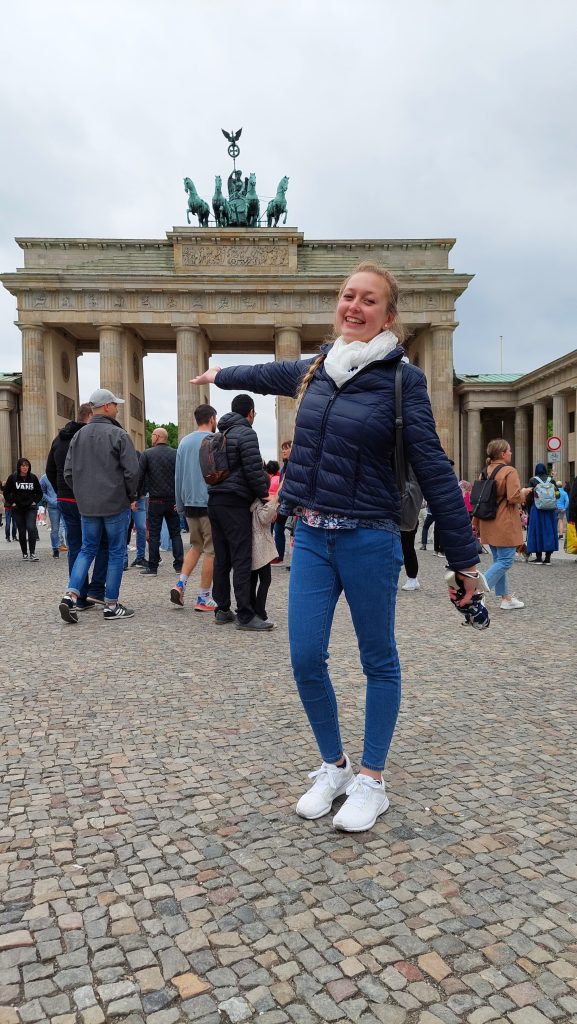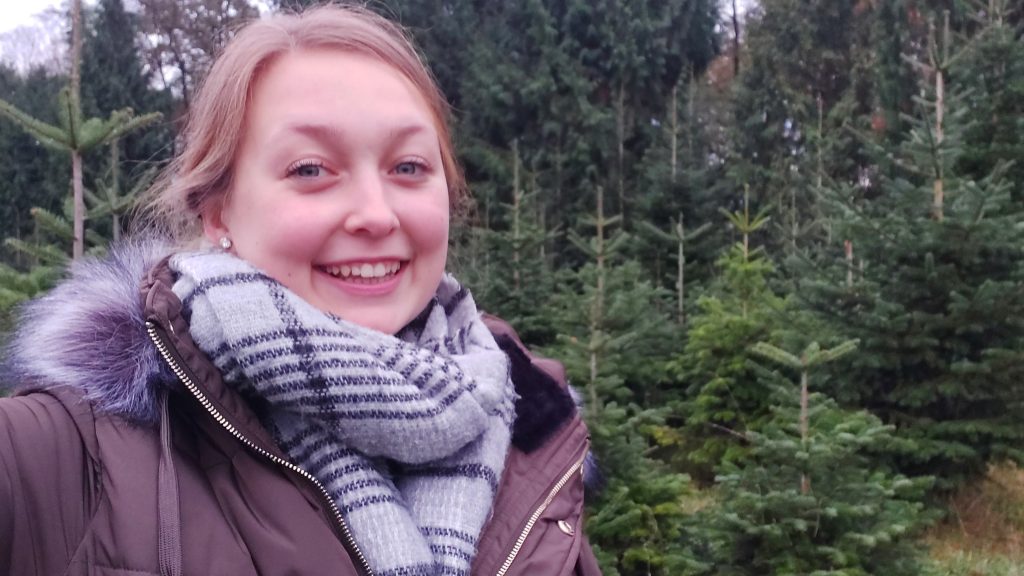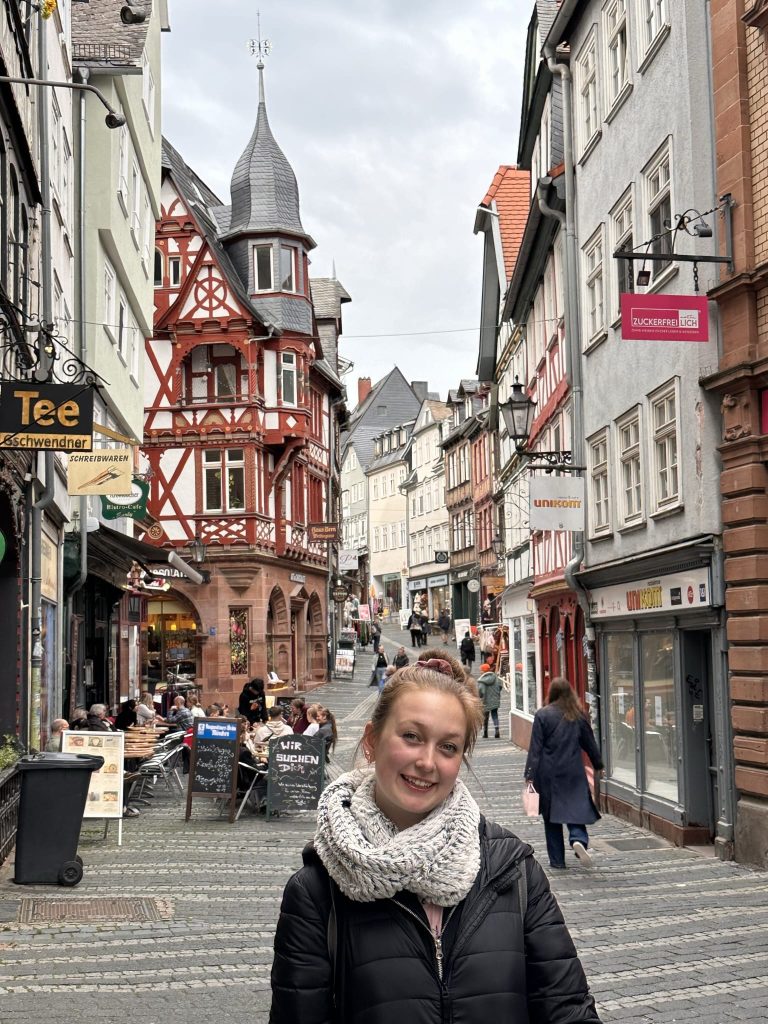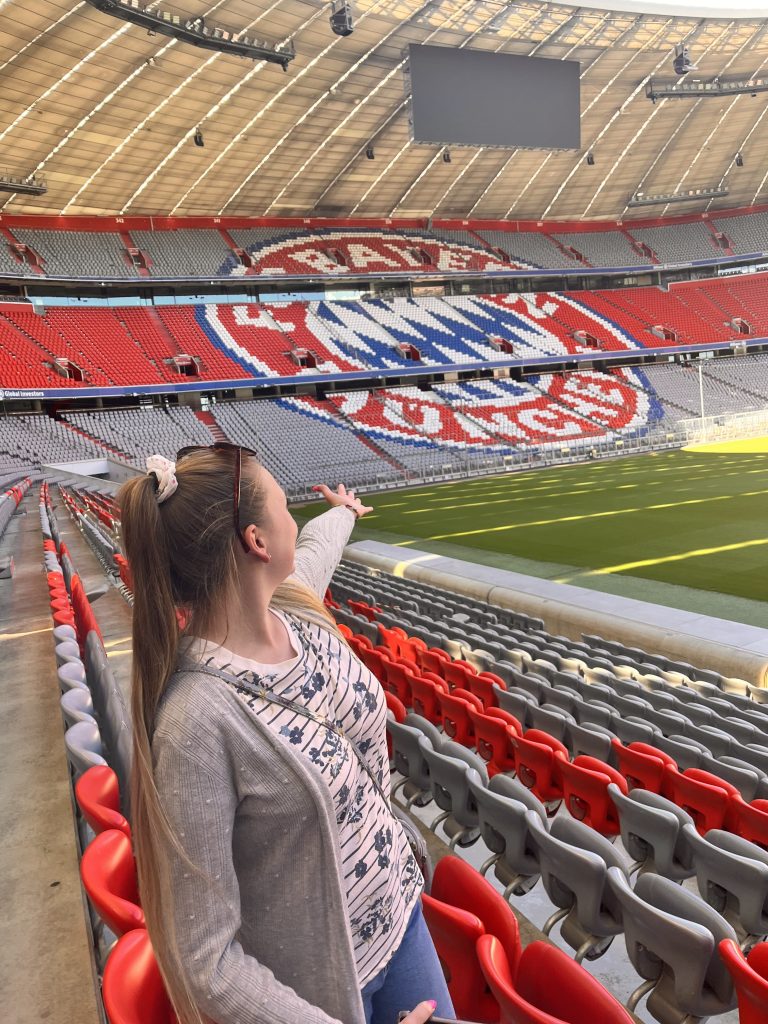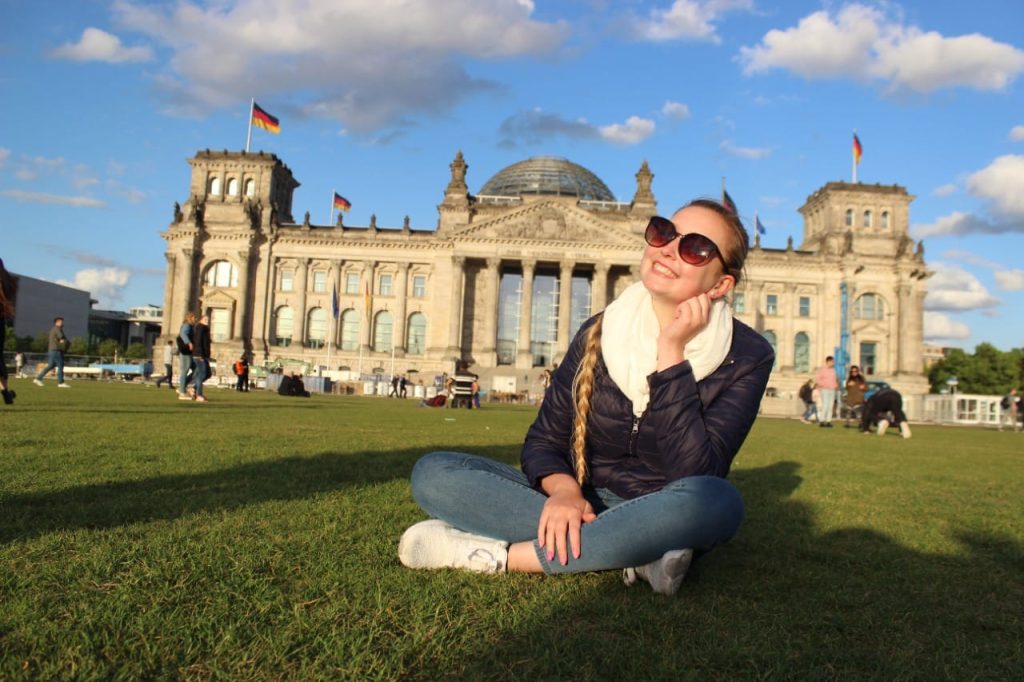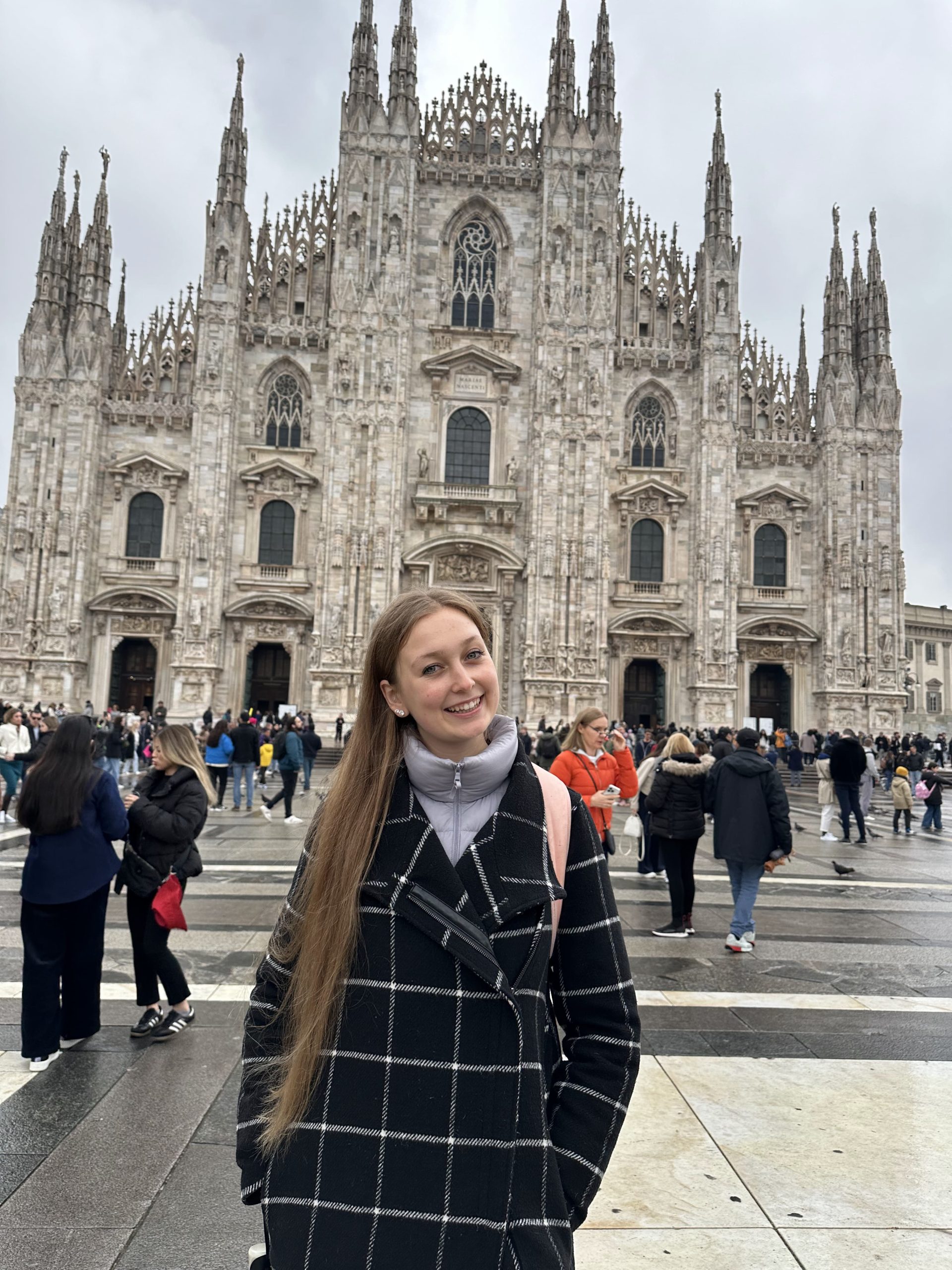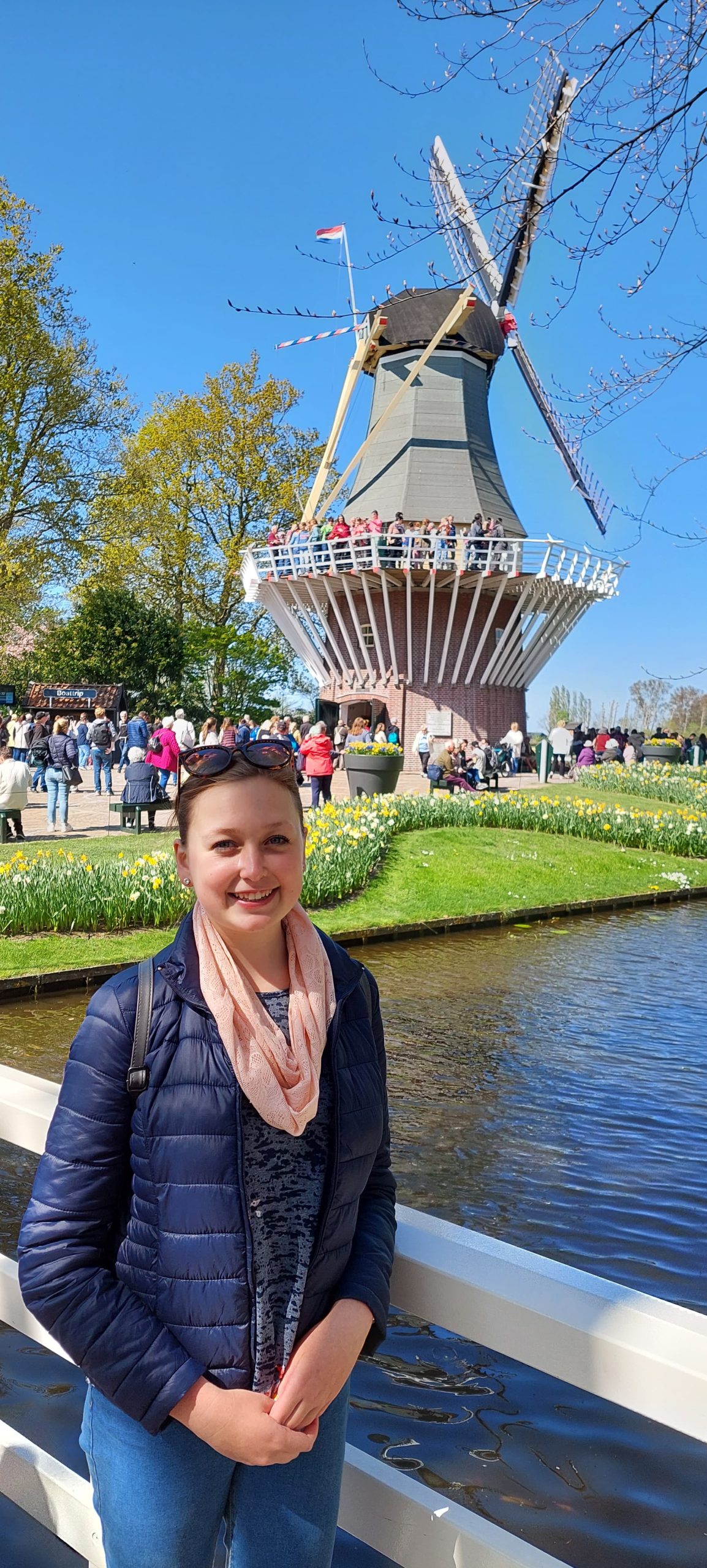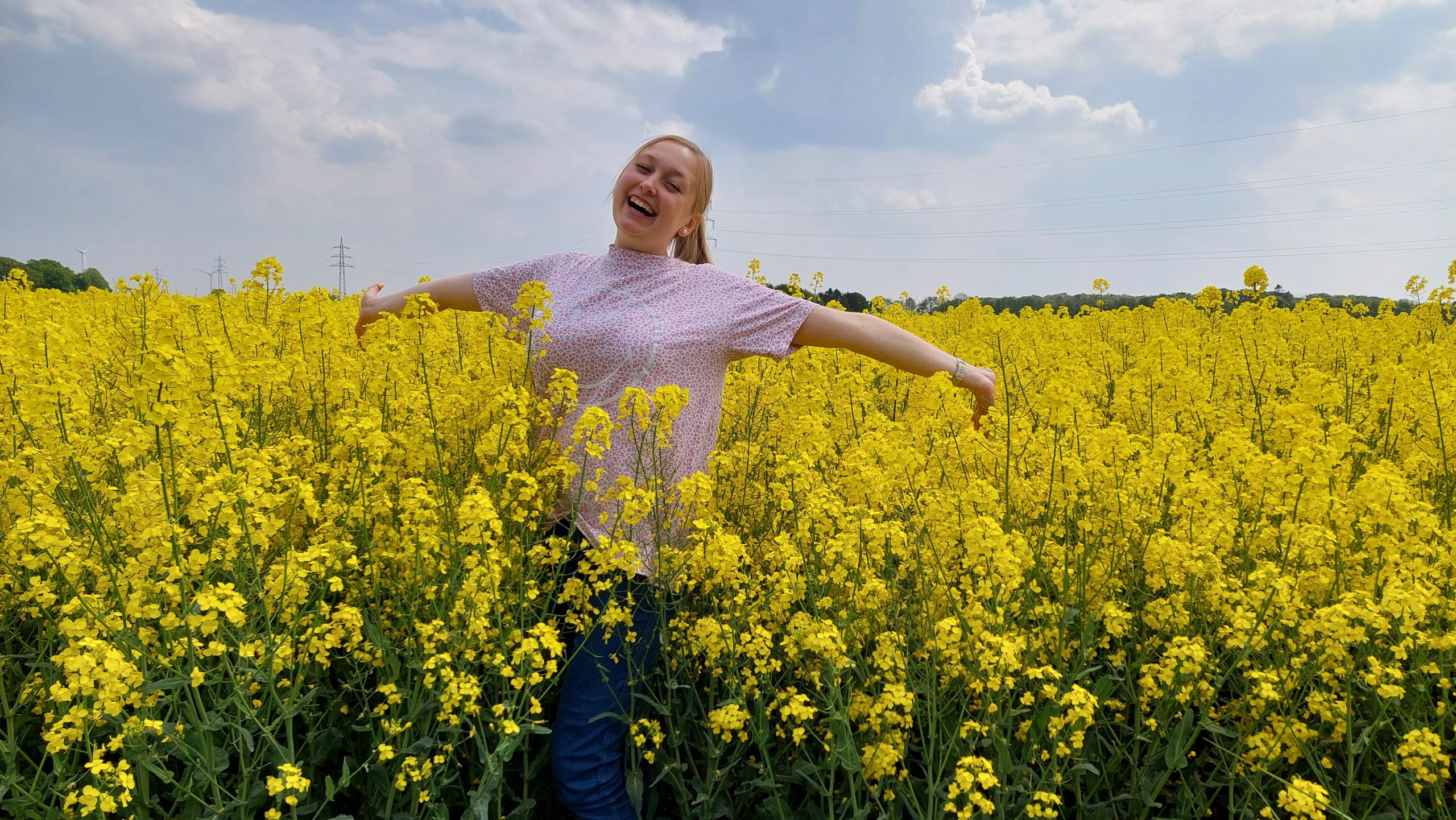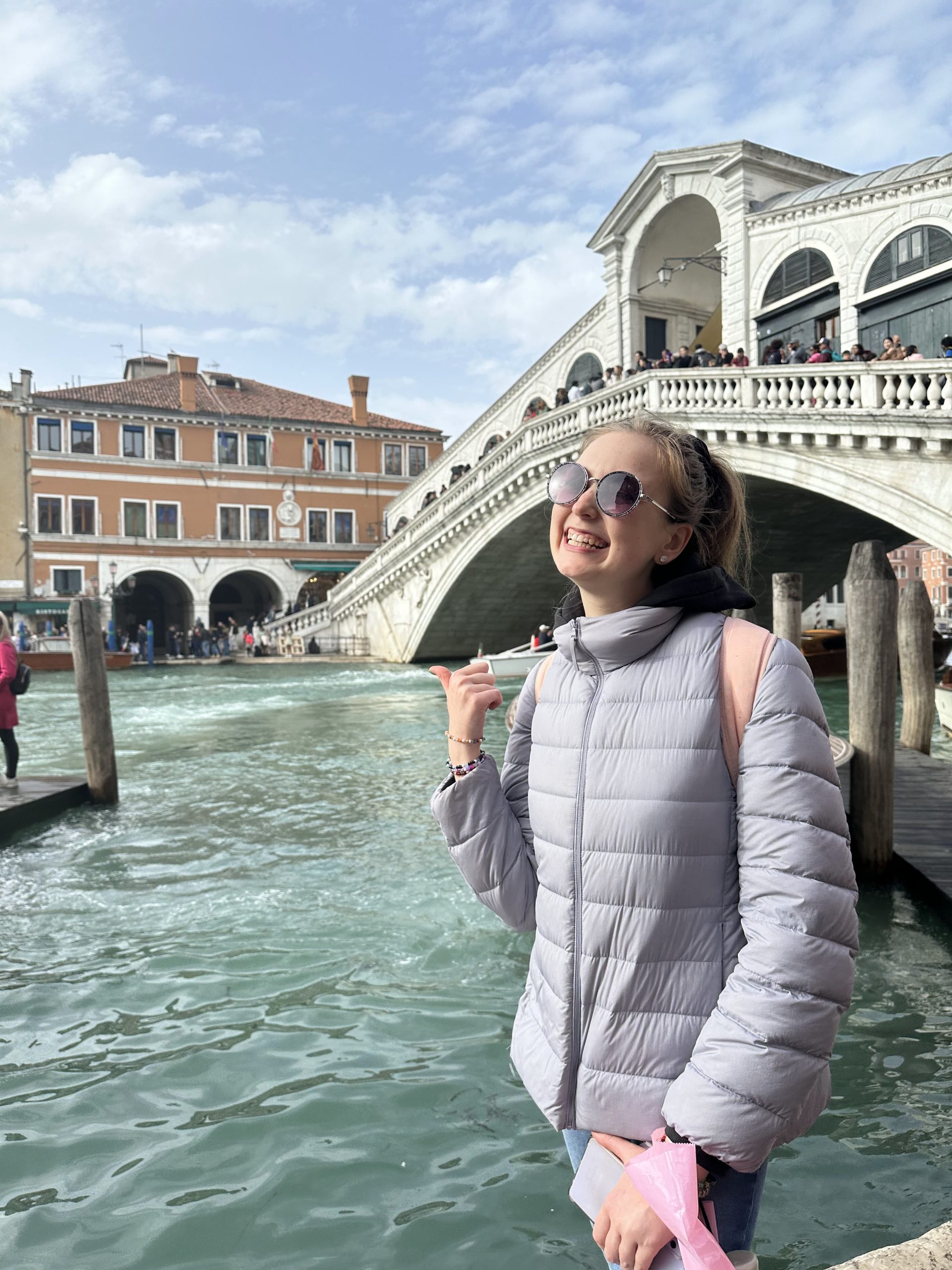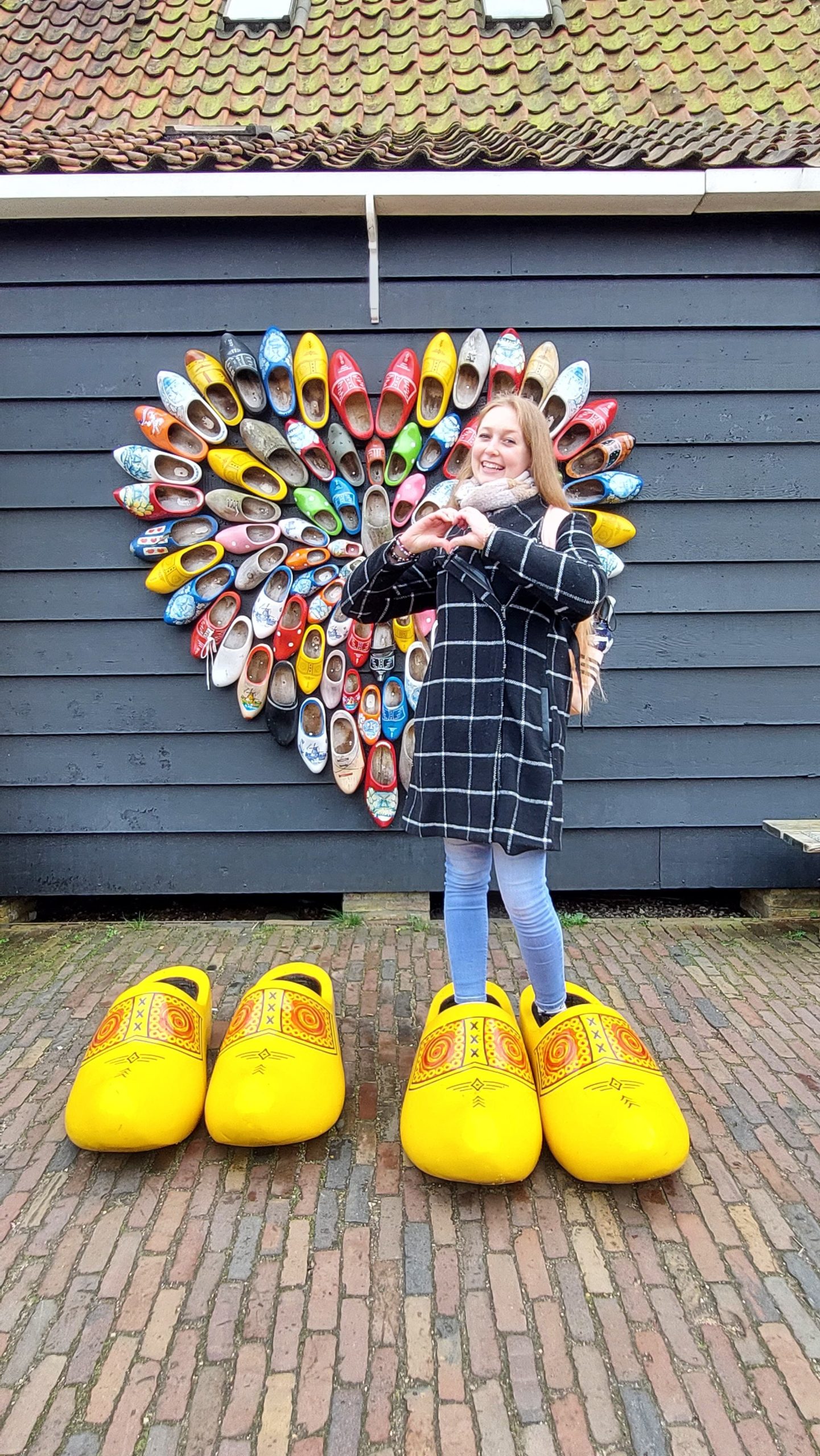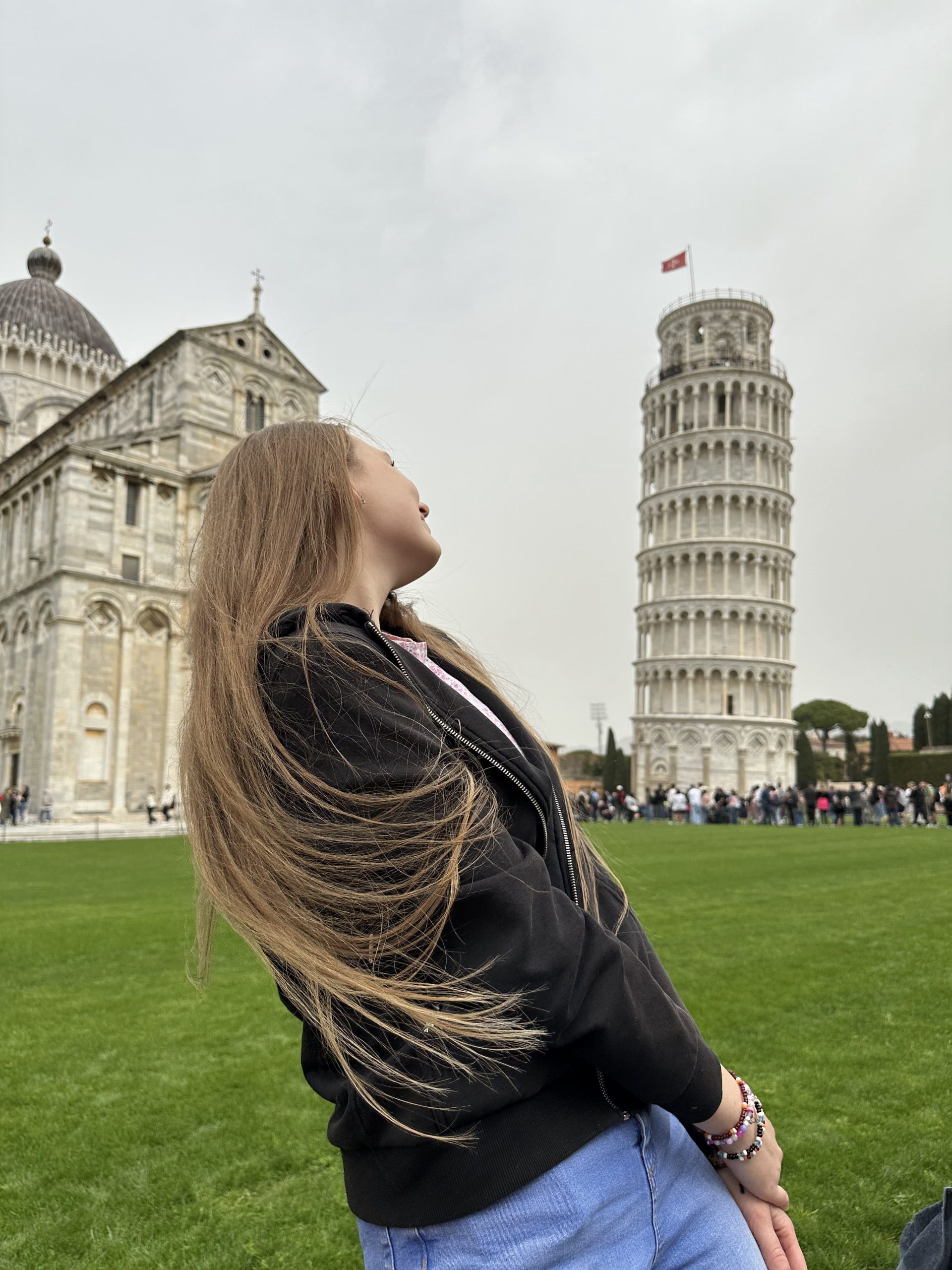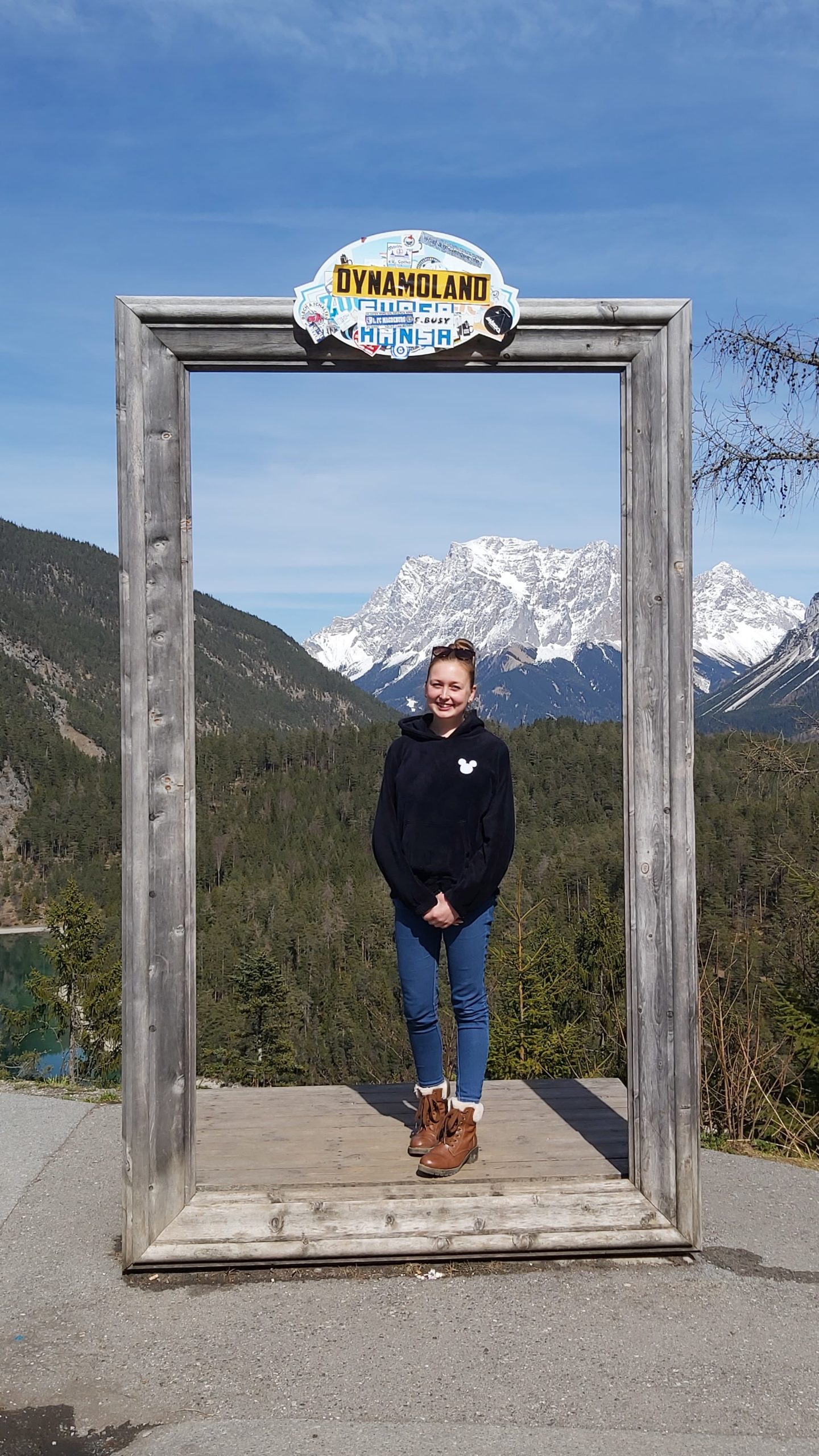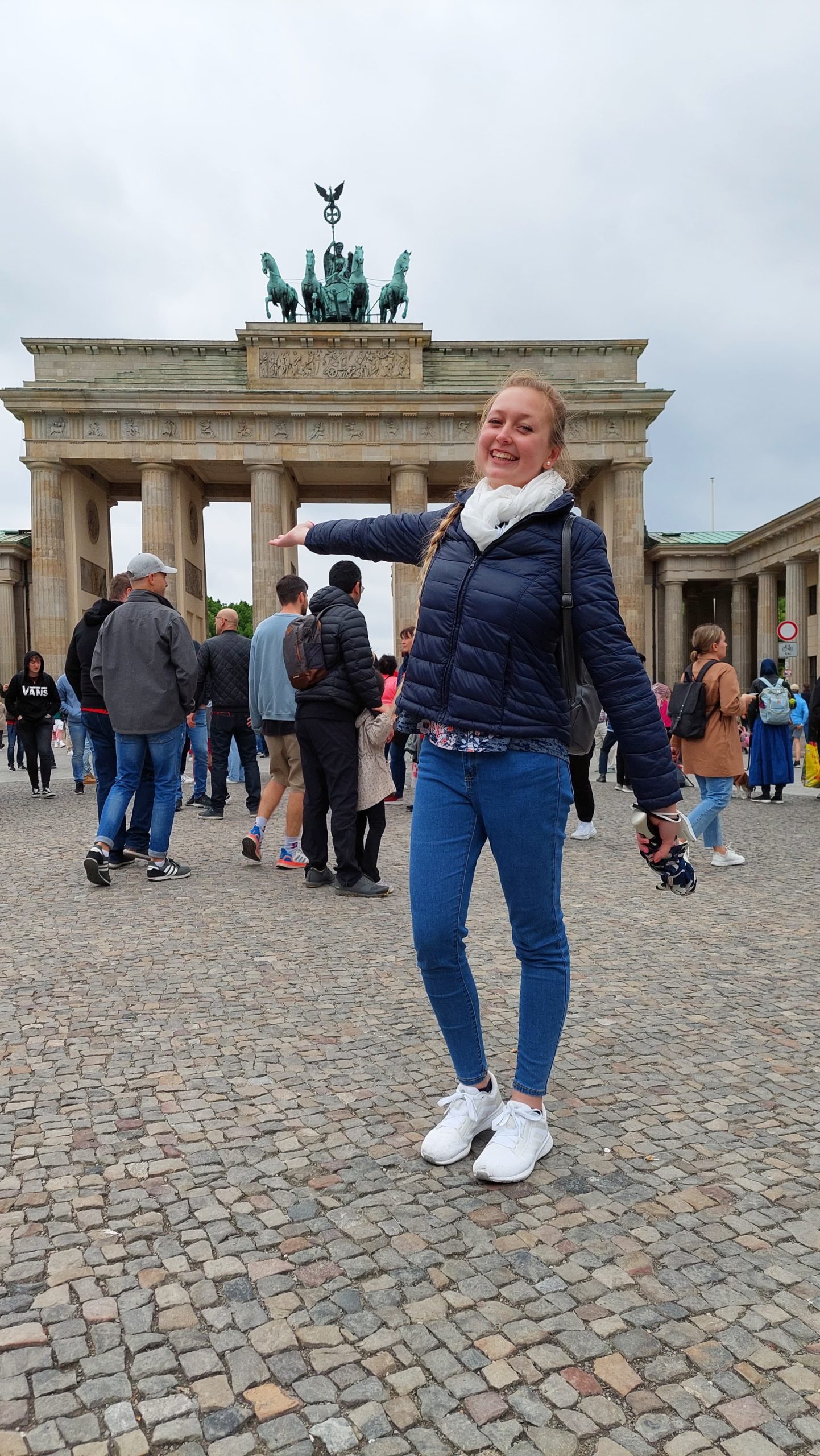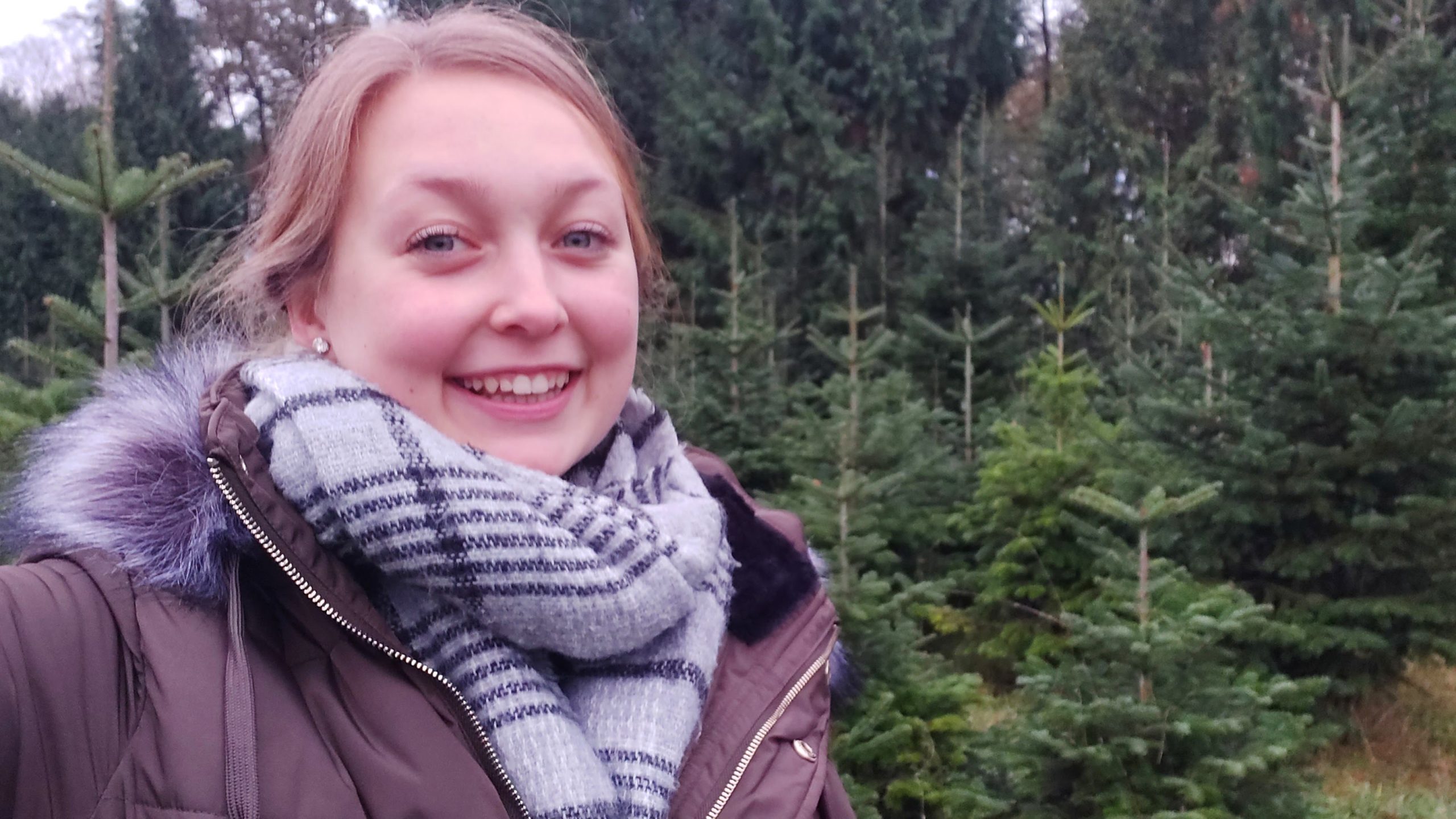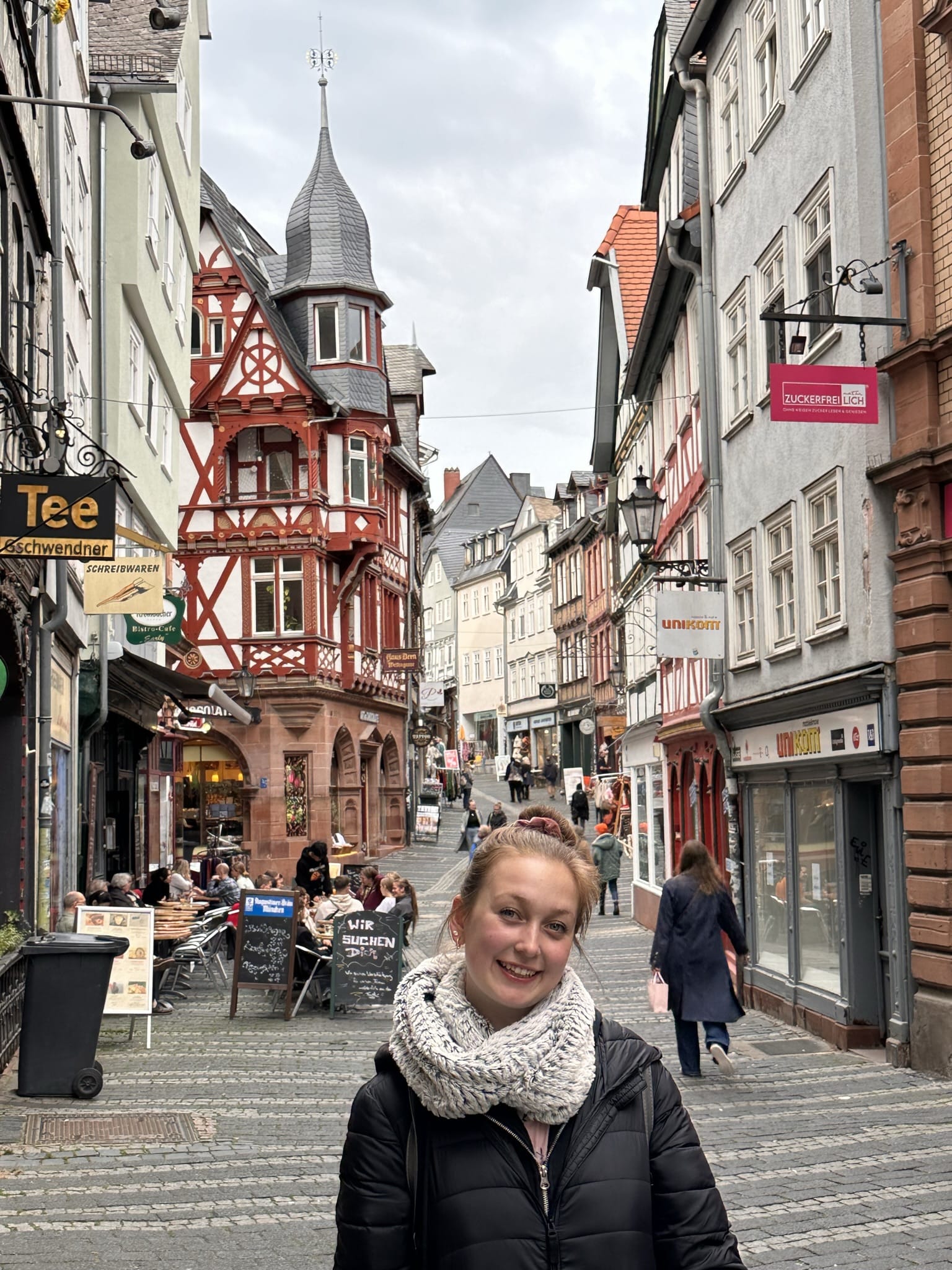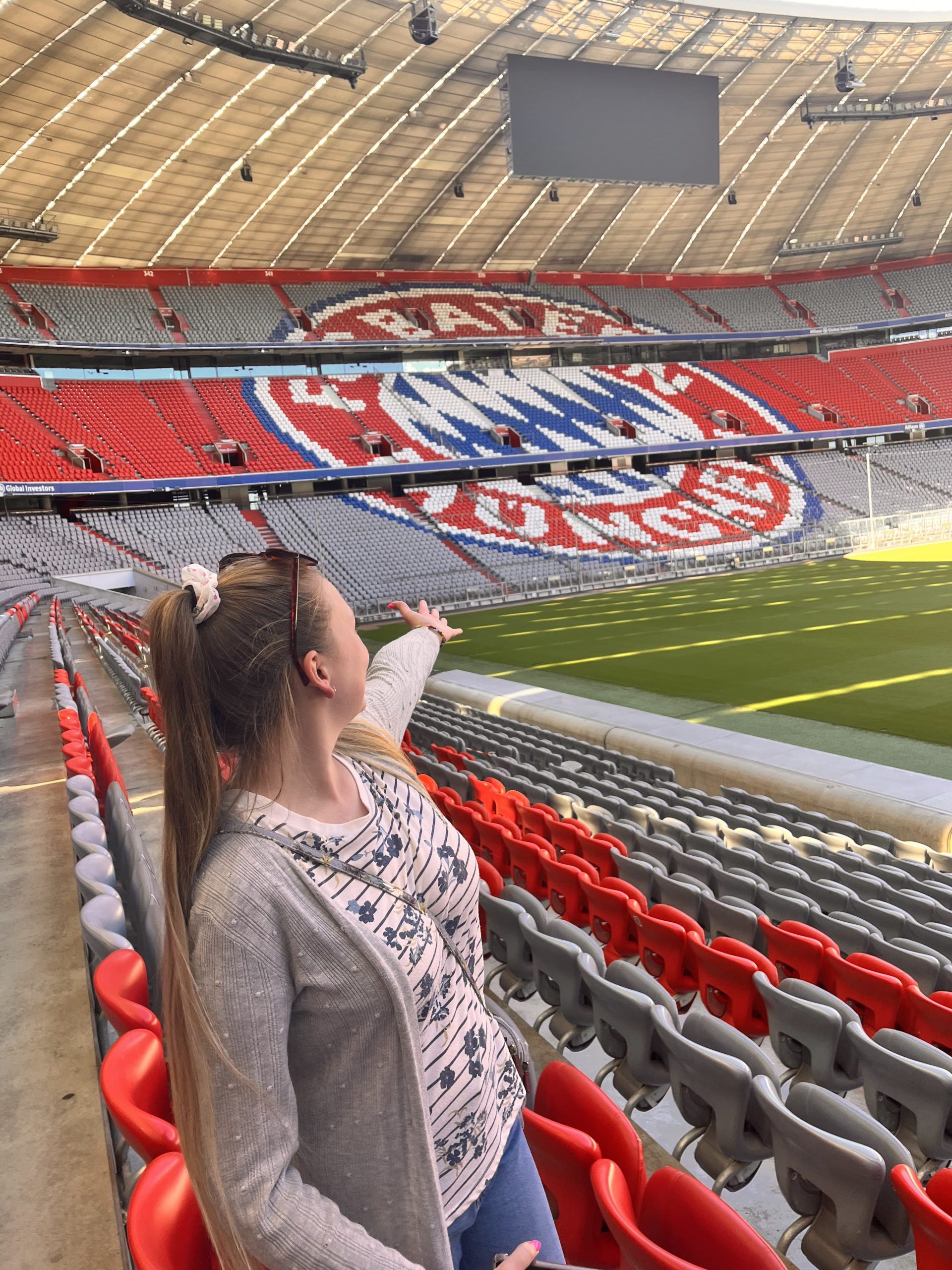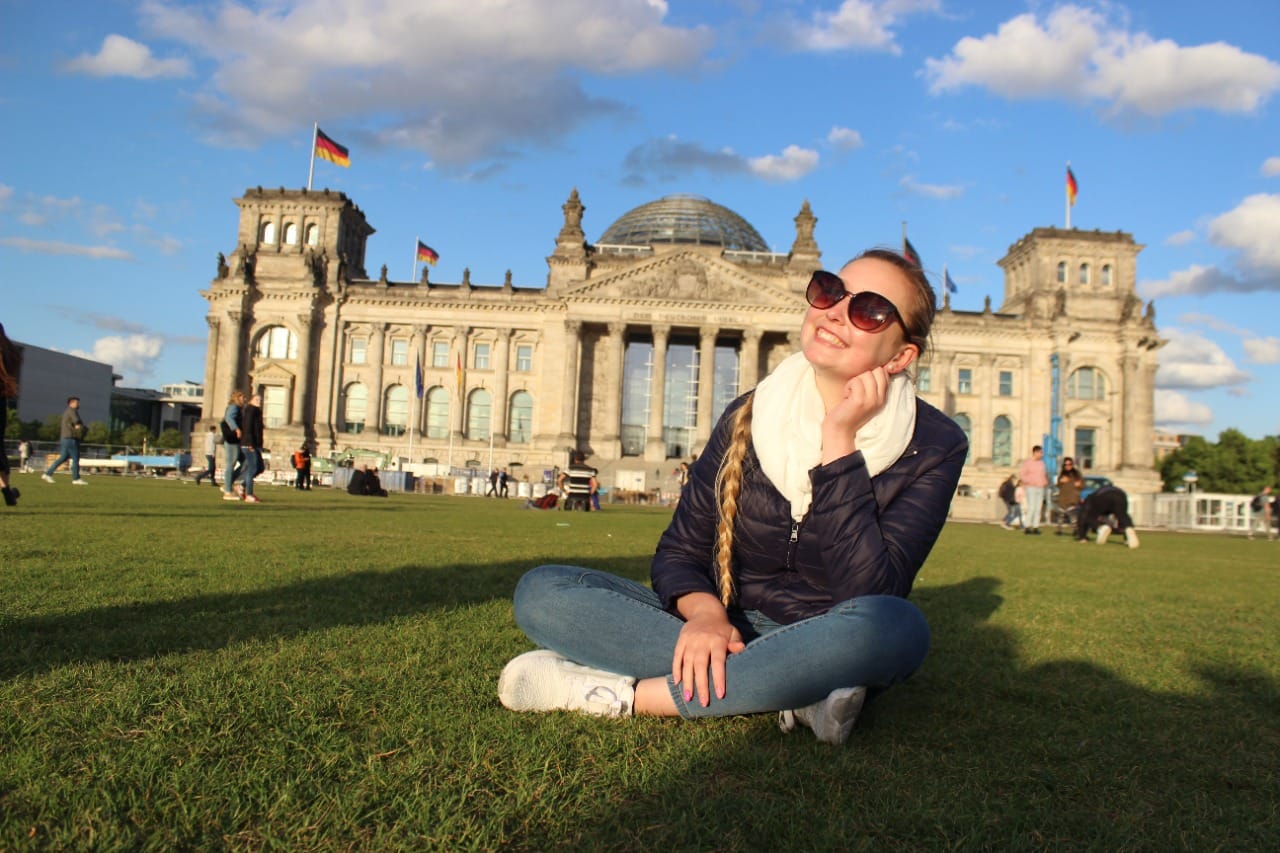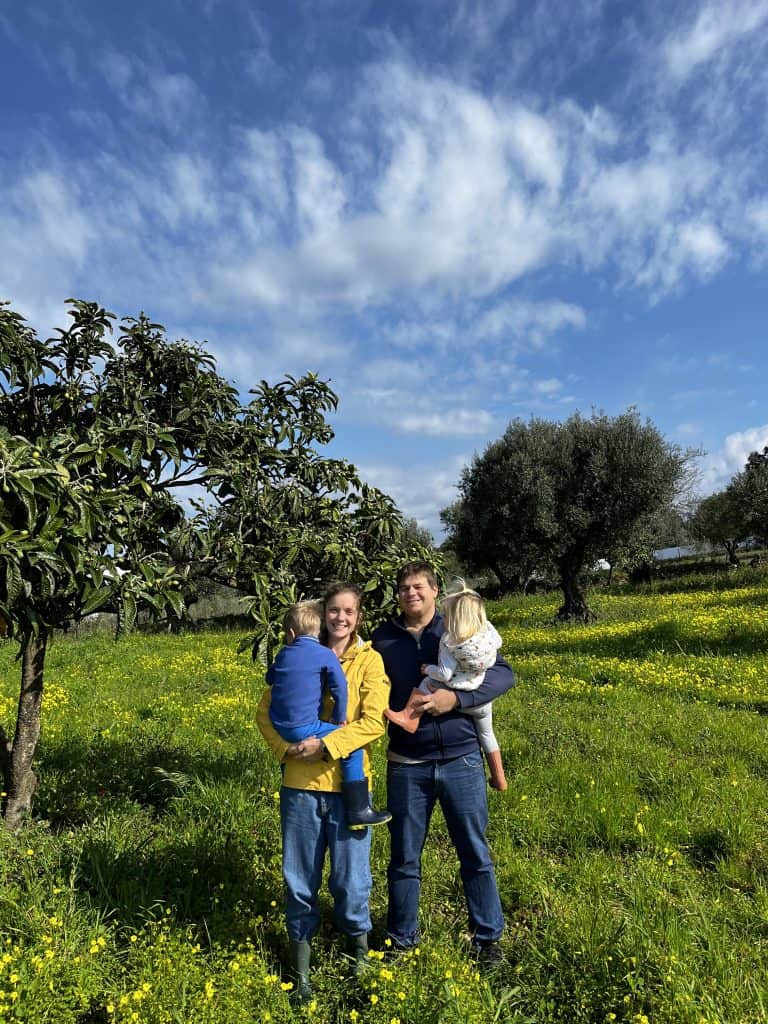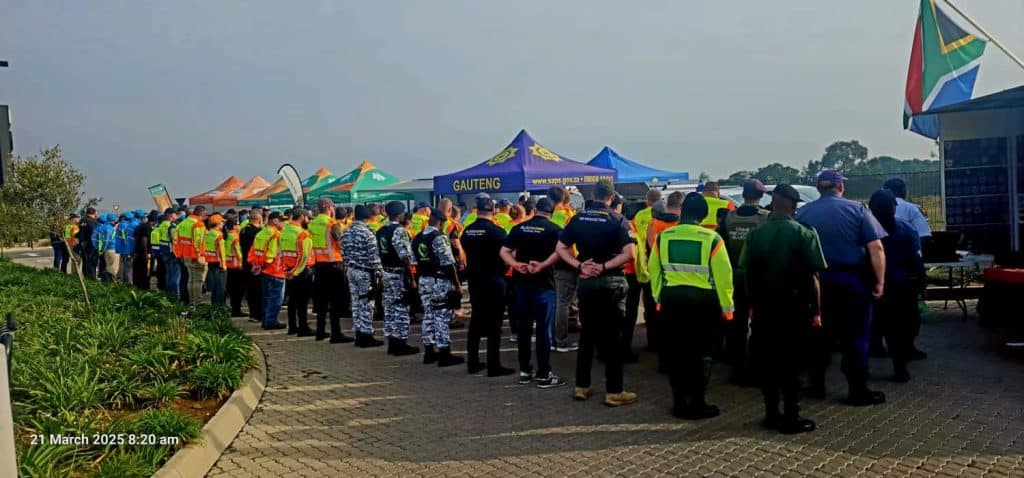Out and about is a column where we chat to people who currently live abroad, or who used to live and work there, but are back in South Africa. We would love to hear from anyone who wants to share their experiences with us.
This week we talk to Carla van der Meulen who lives in Germany.
Hello, Carla! From where in South Africa are you originally?
I am a Capetonian through and through. I have realised while living in Germany how beautiful the Cape is and how privileged I was to grow up there.
You mentioned that you originally went to Germany in 2022 to au pair for a year. Please tell us more about that. Did you enjoy it? How many children did you look after? What lessons did you learn?
Yes, I decided to take time off after my studies and because I studied German and could speak the language, I decided to do au pair work in Germany. I enjoyed it a lot. I could not actually believe that I had the courage to come and live with a strange family in a strange country, but fortunately for me everything worked out well. I had to look after four girls between the ages of four and seventeen. It was a big adjustment because they lived in a very small farming town and I was used to the noise of the Cape. I was afraid that I would not like the countryside. Now I cannot image my life any other way. It is so peaceful and you see nature in full. It is the absolute opposite of the city, but I am very happy.
What lessons did I learn; this is quite a difficult question to answer. You grow a lot by going to a foreign country by yourself and having to solve all the problems that come your way by yourself and what is more in a foreign language. I learnt a lot about myself and had to get out of my comfort zone for many situations, but that is how you grow. I also learnt a lot about educating a child and how you should encourage and support a child.
Was it difficult to adjust, or did you easily make new friends and integrate into the community?
Because I live in a small farming town, making friends is not the easiest thing, but at the same time also very easy. Everyone has their groups and you cannot really just join. On the other hand the people are unbelievably friendly and helpful (something I learnt in school that Germans on no account are).
How did you experience the emigration process?
This answer changes on a daily basis. Fortunately, the Ausländerbehörde here in town already know me very well, so they are always very helpful. I never have to wait long for an appointment or call or letter back (unlike in the bigger cities such as Berlin or Düsseldorf where people wait up to three months for a response).
What does your Afrikaner heritage mean to you? What traditions do you and your family keep alive abroad?
I am very patriotic, even more so now that I don’t live in South Africa. My heritage is very important to me – it is part of me. I will always try my best to preserve it. Because I came over on my own, there isn’t really anything I do. Perhaps listening to Afrikaans music or podcasts, baking or cooking something truly South African here and there.
You mentioned that you work as a teacher at a Gesamtschule where you teach German to refugees/foreigners. Please tell us a bit more about this. What challenges did you experience? Why did you decide to do this? What is the best part of your job? How do you find teaching German to refugees/foreigners?
Gosh, yes. Since I started learning German in Grade 8, I have developed a love for the language. I worked as a tutor for the German department at university. There I learnt that I wanted to teach German. After my year as an au pair, there was an opportunity to work as a “volunteer” (Bundesfreiwillige or Bufdi in German) at the farming town’s primary school. There were a few refugees in the school that I sometimes gave extra German lessons too. There is a huge shortage of teachers in Germany, especially now with all the refugees. I decided to apply for a few jobs as DaZ teacher – Deutsch als Zielsprache (German as end goal language). Who better to teach German to refugees/foreigners, as a outsider who had to learn German as a foreign language and who knew the challenges of the language firsthand. My scholars are always surprised when they remember that German is not my first language. I want to be an inspiration to them, an example, because if I can do it, why can’t you/they do it? The work is very challenging because scholars from many different backgrounds and cultures come to you, but for the same reason very interesting. I enjoy learning about their countries and cultures. I enjoy my work a lot.
How often do you see your family?
Over video calls, quite often. I have been to Cape Town twice since I arrived here. I would like to try to go over at least once a year. Fortunately, I have family living in the Netherlands. I see them a little more. And at least it helps with the longing for South Africa.
What interesting things have you discovered about the country where you live that you did not know before?
Here, the sun is a luxury! If the sun shines, then you better be outside, because you never know when you will get that chance again.
Everything comes by post. I have probably never received so many letters. Even my tax number came in the post. And on the letter it says that I have to take good care of the document, because I will not get a new letter with the number. And the mountains of forms and paperwork! It is terrible.
How does the food in Germany differ from that in South Africa?
Bread, bread and more bread. I literally developed a gluten intolerance because of all the bread. Dinner is even referred to as Abendbrot (evening bread). Al least there are many different types and always freshly baked. Bread in plastic bags – like Albany – is called “toast” bread and is only used for toast and snackwiches.
What do you do for leisure in Germany?
Go for a walk of ride a bicycle. There are walking and cycling routes everywhere.
Interesting facts about Germany:
Everything is closed on a Sunday.
This may not be not an interesting fact, but it always takes my breath away. I sometimes forget how much history there is in Europe. There are buildings here that survived two world wars or that have already been built in the 1200s. And then cities such as Cologne which have existed since 38 BC. To think that I can then use the same streets and enter the same buildings is astounding to me.
Driving vehicles and driver’s licences – how is it different from South Africa? Do you own your own vehicle or do you use alternative transport?
Probably one of the easiest things that I had to do here was to get my German driver’s licence. I just had to make an appointment at the local traffic department, take with two ID photos and I think 25 euro (but the amount could have changed). I signed a few forms and that was that. Four weeks later I received an e-mail to inform me that I can pick up my German driver’s licence. They then take your South African licence and give you a German one. The South African licence will be destroyed after five years if you do not claim it (then they destroy your German one). I have an international licence that I got here to be able to drive in South Africa and it is valid for 10 years which is very convenient.
If you live in big cities, you don’t really need a car because public transport is everywhere and frequent. Sometimes even 24 hours. There is also a public transport subscription fee of 50 euro per month with which you can travel the whole of Germany on all means of transport (except the high-speed trains).
Here in the countryside there are also buses and trains, but only every hour and then only from 18:00 to 21:00 which sometimes makes your plans a little difficult. I don’t have a car yet, but I am in the process of getting one and it is not that simple at all.
Is there anything else that you want to share with us?
I am very fortunate to have had all these incredible experiences and chances, but life here isn’t always moonlight and roses. Some days it is very difficult to be so far away from home and what is known to you, not to be able to give your loved ones a quick hug. There are many challenges making a life for yourself abroad. You have to start completely from scratch. Everything is unknown and new and strange. There comes times when the unknown becomes the known, but it takes a while. There are times when I doubted my choices and that life and everything that goes with it would have only been easier if I was in South Africa. Then I remember everything that I have been through and sacrificed and that I did come out on the other side. Sometimes I learnt something about myself in the process and am surprised at what I am capable of.
I wanted to share this with you, because there are others in the same position or with the same thoughts as me, who have left their homeland and started over abroad. Good luck! Du schaffst das!
Write to us
Do you live abroad, or have you recently moved back from abroad? You can also write an Out and about article. Send an email to wereldwyd@afriforum.co.za and we will send you some questions to answer.



